Tom's Hardware Verdict
There's no doubt that the Predator Apollo RGB DDR4-4500 is a speedy memory kit. Unfortunately, the hefty price tag will probably scare off potential buyers.
Pros
- +
+ Good XMP performance
- +
+ Samsung B-die ICs
- +
+ RGB lighting doesn't require proprietary software
Cons
- -
Excessively tall
- -
Far too expensive
Why you can trust Tom's Hardware
It's hard not to know Acer – it's one of the more prominent mainstream brands in the computer industry. However, the company's Predator sub-brand might not ring a bell for the typical computer user that's not into gaming. Nonetheless, the Predator label is home to Acer's premium gaming PCs, laptops, monitors, and chairs. To further expand its reach, Acer has created Predator Storage, a new family of high-performance storage and memory products that target enthusiasts and gamers alike.
Acer won't actually manage Predator Storage, though. Following in HP's footsteps, Acer has handed the reins over to Chinese OEM Biwin Storage to manufacture and commercialize Predator-branded memory and SSDs on its behalf in the United States and Canadian markets. Today marks Predator Storage's first venture into the memory market. The sub-brand debuts with its Apollo RGB series of gaming memory that offers frequencies ranging from DDR4-3200 up to DDR4-5000.
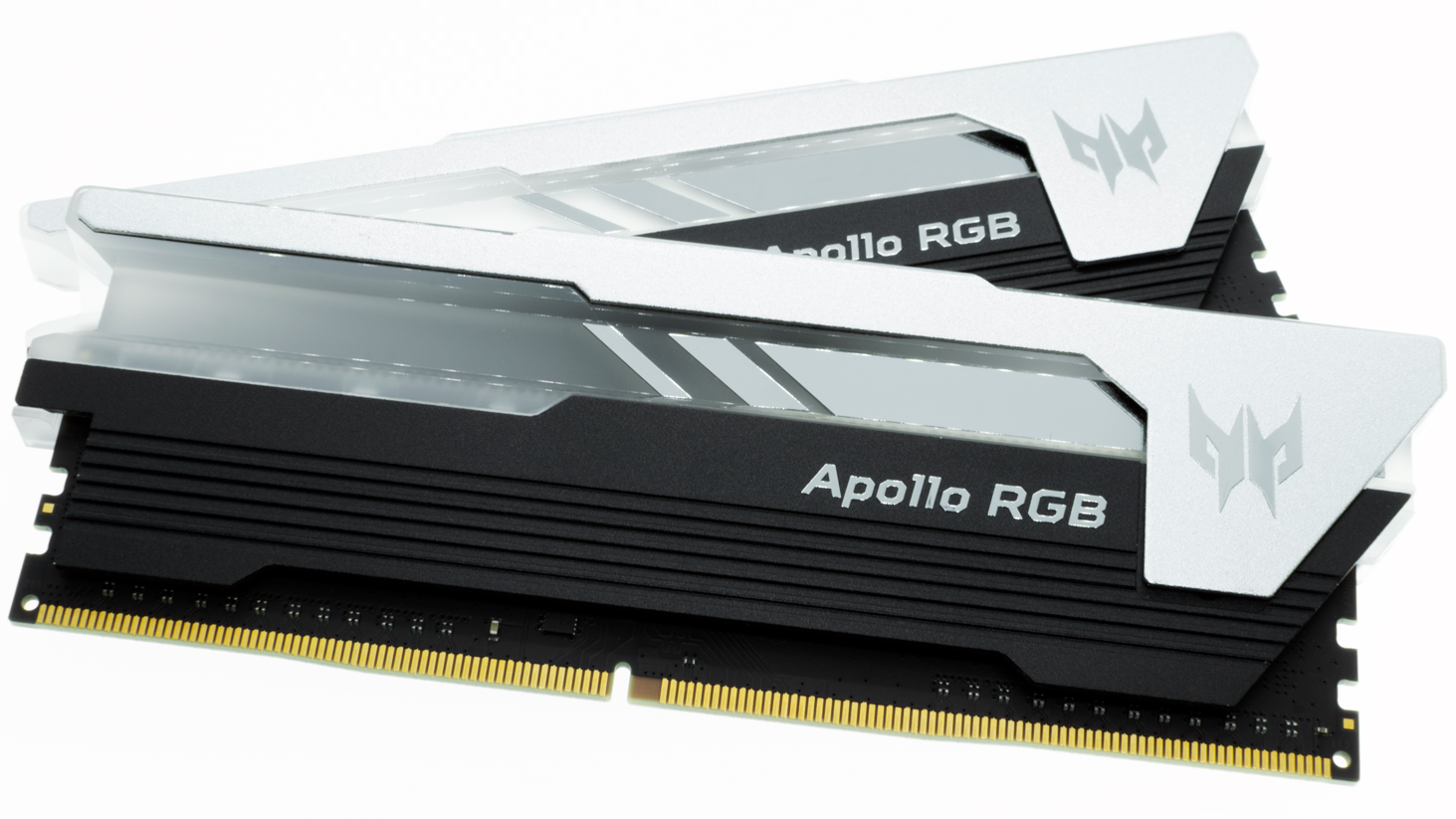
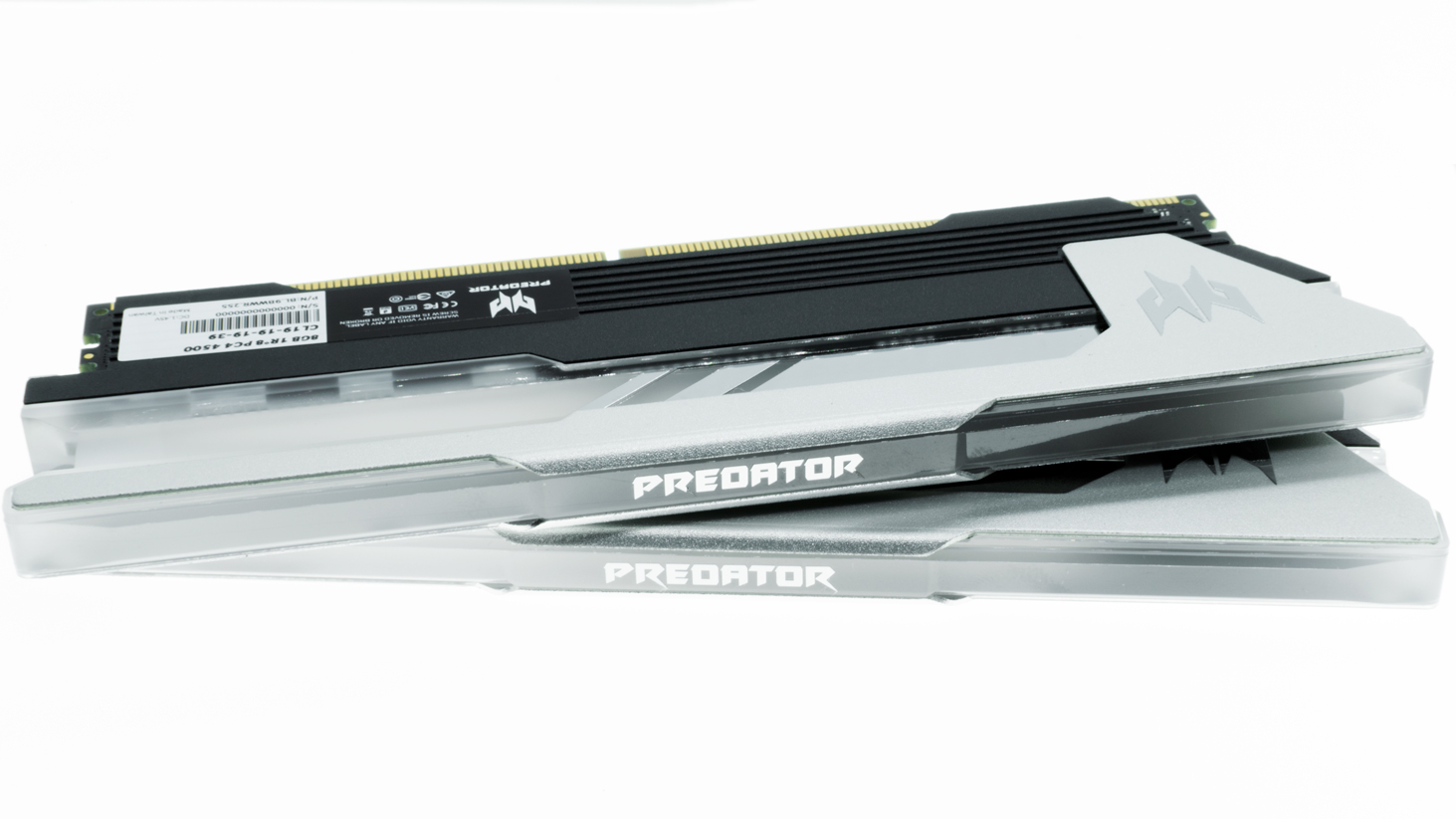
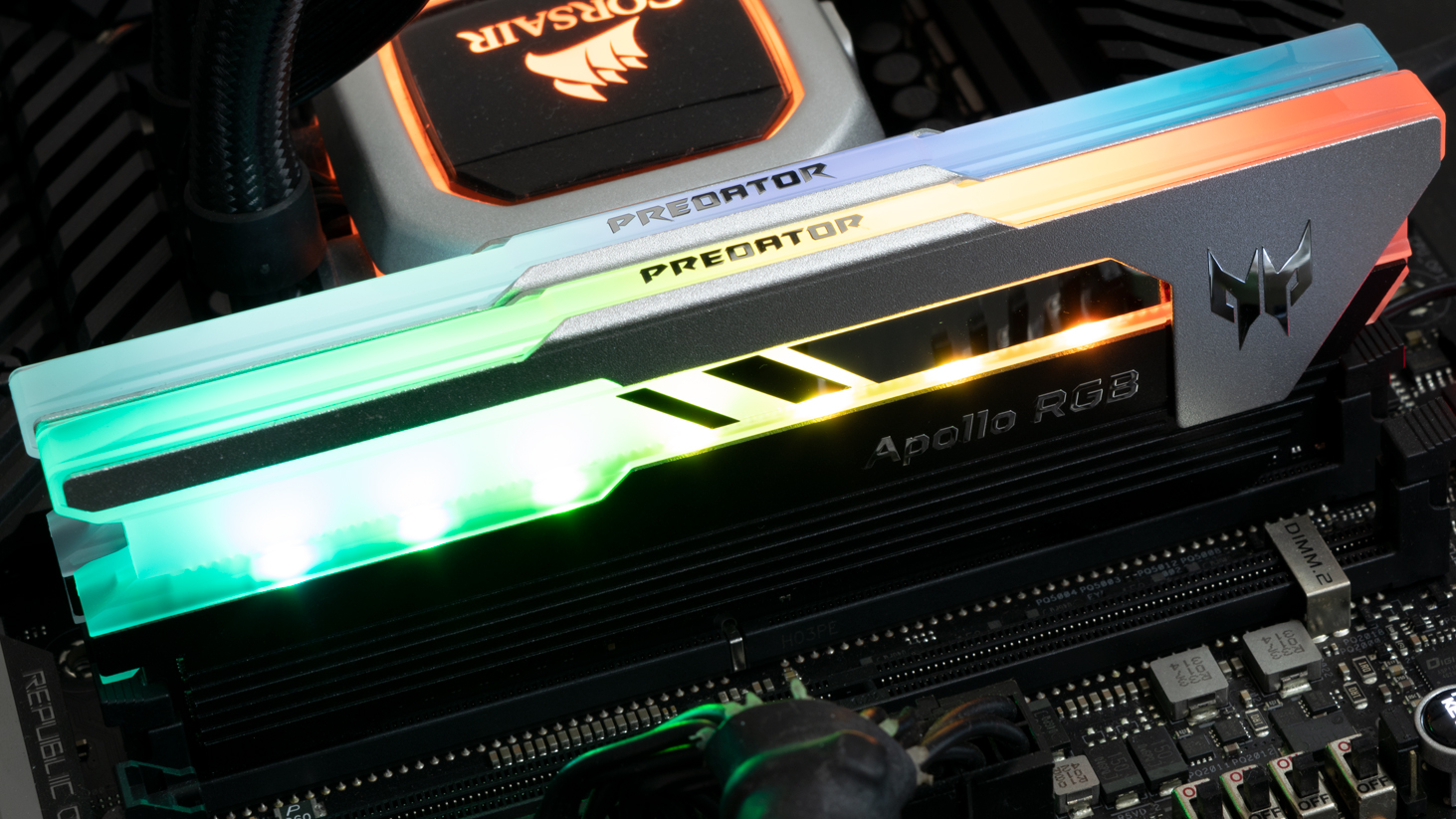
The Predator Apollo RGB memory modules sport an aluminum heat spreader for effective heat dissipation. According to the brand, the design takes after a cyberpunk theme. It features a two-tone paint job with a mixture of black and silver colors and is carved in such a way that it exposes the majority of the LED diffuser. However, one thing to consider is that the Predator Apollo RGB measures 51.4mm (2.02 inches) tall, so you'll need to make sure you have the necessary clearance space for the memory modules, especially if you're using a large CPU air cooler.
As with any modern-day gaming memory, the Predator Apollo RGB is equipped with RGB lighting that you can configure to your heart's content. Software isn't provided for such purposes, but the memory is compatible with all the major RGB ecosystems, including Asus Aura Sync, Gigabyte RGB Fusion 2.0, MSI Mystic Light Sync, and ASRock Polychrome Sync.
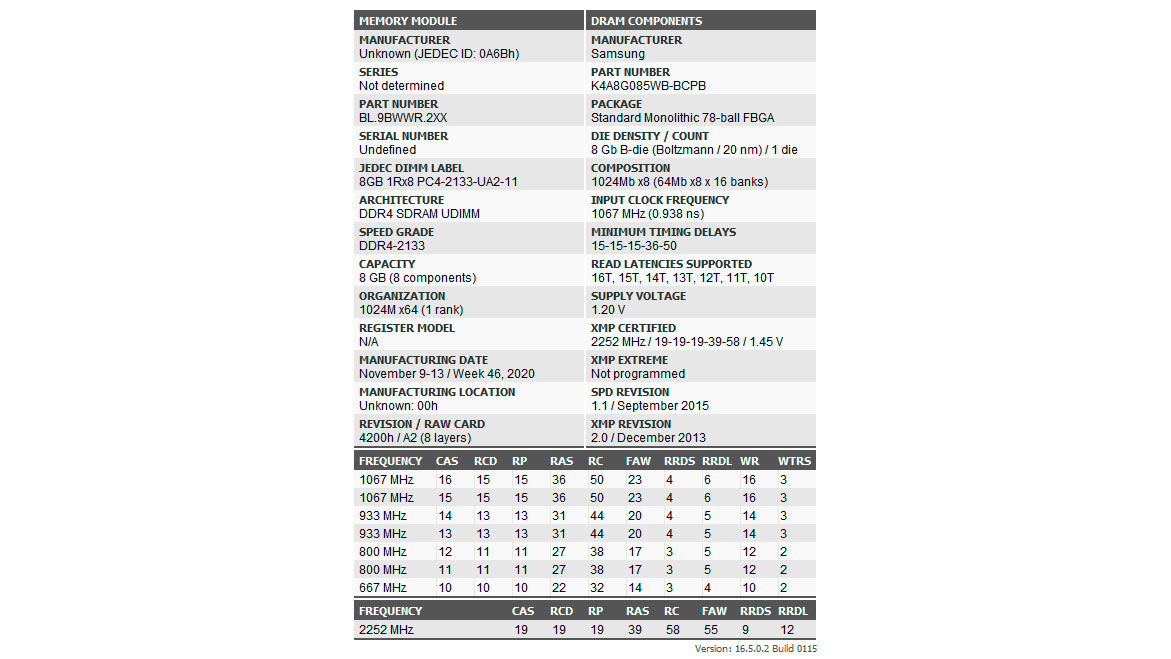
Our Predator Apollo RGB memory kit checks in at an unorthodox data rate of DDR4-4500. There are so few DDR4-4500 memory kits on the market that we can count them with the fingers of one hand. As you can tell by now, the Predator Apollo RGB is a dual-channel 16GB memory kit, so it consists of two DDR4 memory modules with a density of 8GB each. The memory modules are based on a single-rank design and are manufactured with a 10-layer PCB and 15μm gold-plated contacts.
Leveraging Samsung's K4A8G085WB-BCPB (B-die) ICs, the Predator Apollo RGB is rated for DDR4-4500 at 19-19-19-39 timings with a 1.45V DRAM voltage requirement. When the XMP 2.0 profile for the advertised speed isn't active, the memory modules default to DDR4-2133 with automatic timings at 15-15-15-36. For more on timings and frequency considerations, see our PC Memory 101 feature, as well as our How to Shop for RAM story.
Comparison Hardware
| Memory Kit | Part Number | Capacity | Data Rate | Primary Timings | Voltage | Warranty |
|---|---|---|---|---|---|---|
| Thermaltake ToughRAM RGB | R009D408GX2-4600C19A | 2 x 8GB | DDR4-4600 (XMP) | 19-26-26-45 (2T) | 1.50 | Lifetime |
| Predator Apollo RGB | BL.9BWWR.255 | 2 x 8GB | DDR4-4500 (XMP) | 19-19-19-39 (2T) | 1.45 | Lifetime |
| Patriot Viper 4 Blackout | PVB416G440C8K | 2 x 8GB | DDR4-4400 (XMP) | 18-26-26-46 (2T) | 1.45 | Lifetime |
| Klevv Cras XR RGB | KD48GU880-40B190Z | 2 x 8GB | DDR4-4000 (XMP) | 19-25-25-45 (2T) | 1.40 | Lifetime |
| TeamGroup T-Force Xtreem ARGB | TF10D416G3600HC14CDC01 | 2 x 8GB | DDR4-3600 (XMP) | 14-15-15-35 (2T) | 1.45 | Lifetime |
Our Intel test system consists of an Intel Core i9-10900K and Asus ROG Maximus XII Apex on the 0901 firmware. On the opposite side, the AMD testbed leverages an AMD Ryzen 5 3600 and ASRock B550 Taichi with the 1.30 firmware. The MSI GeForce RTX 2080 Ti Gaming Trio is the main graphics card in our RAM benchmarks.
Intel Performance
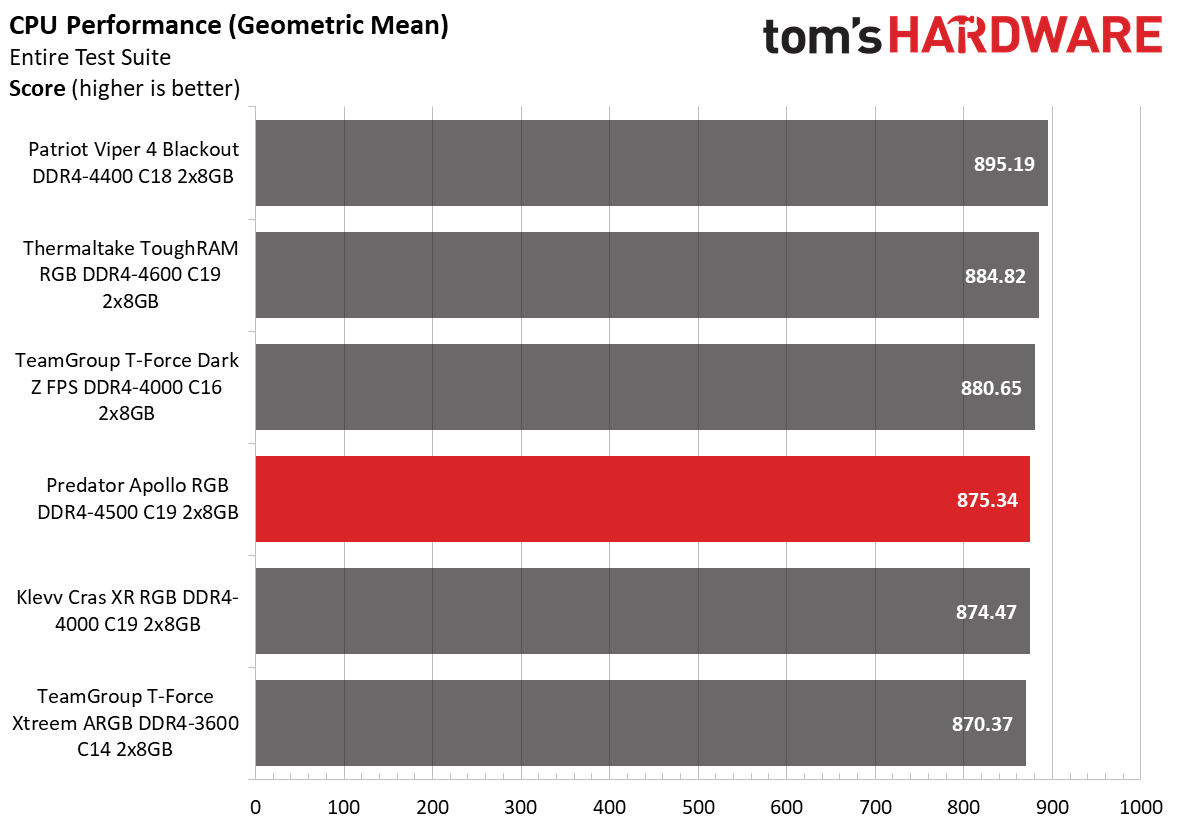
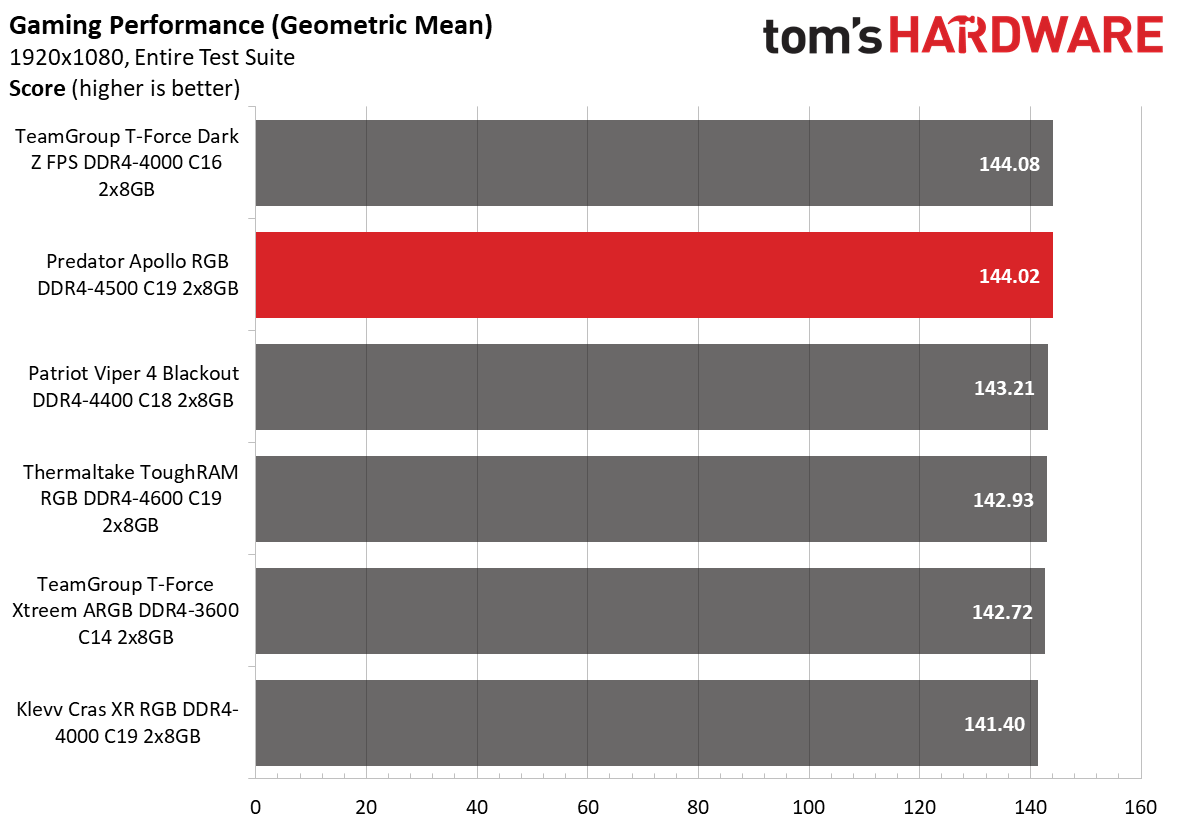
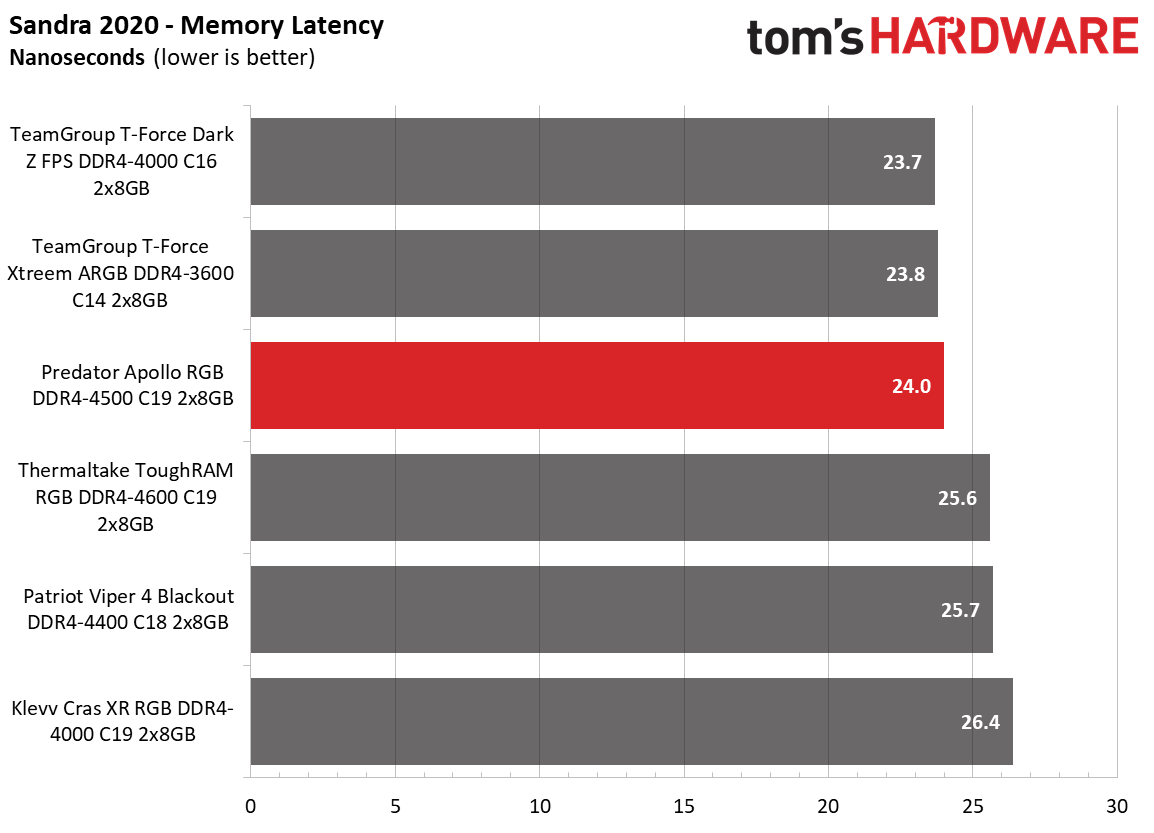
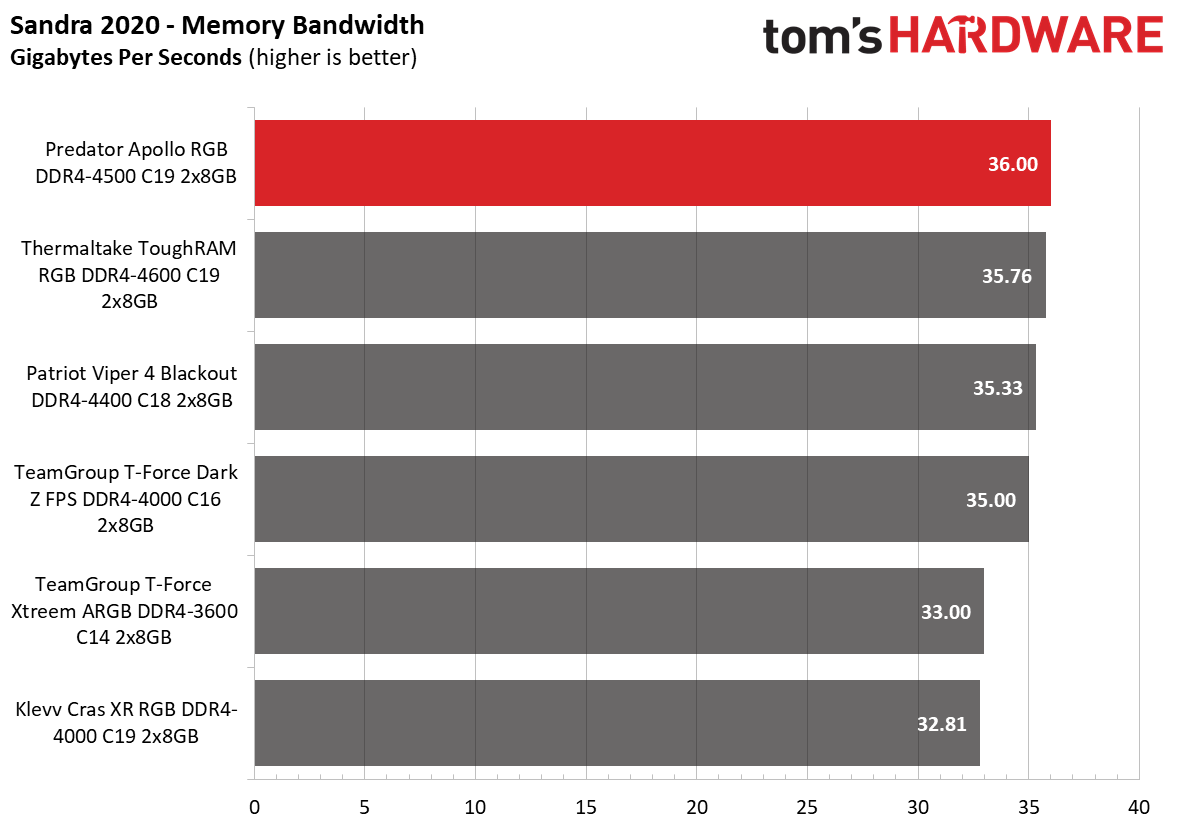
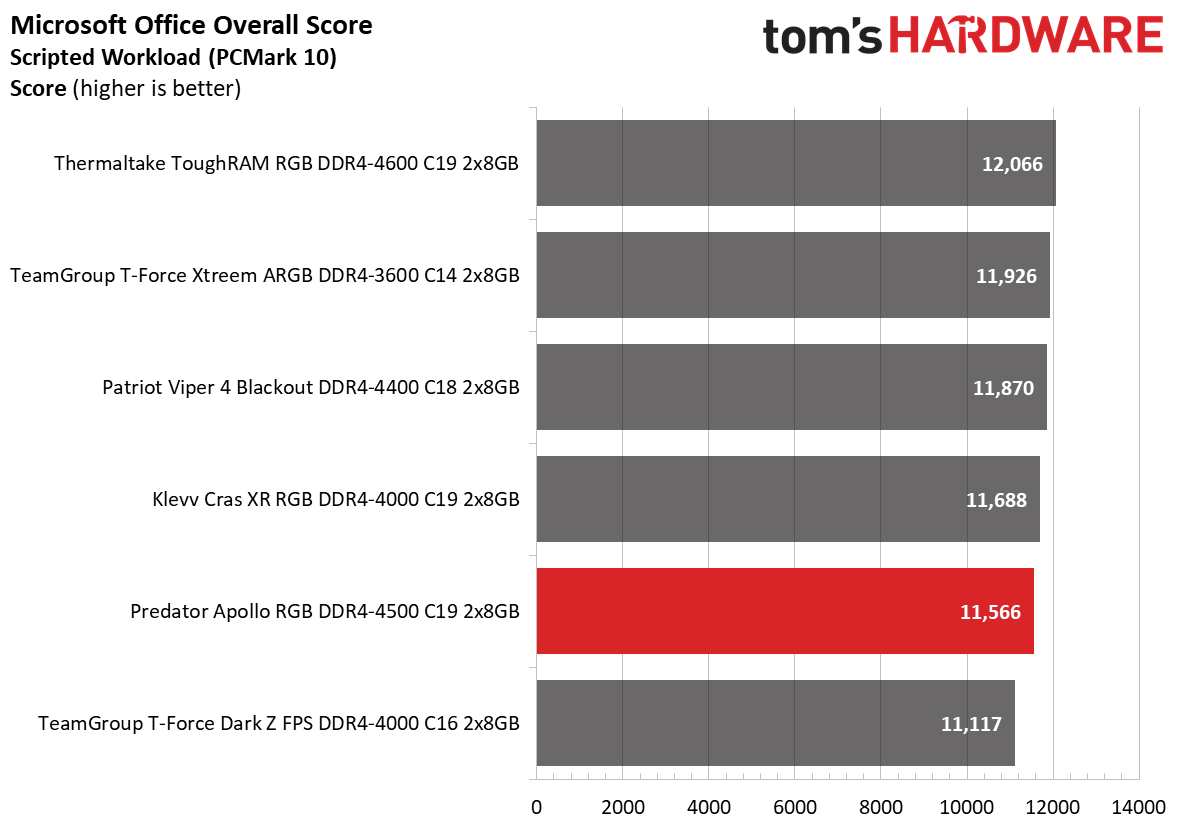
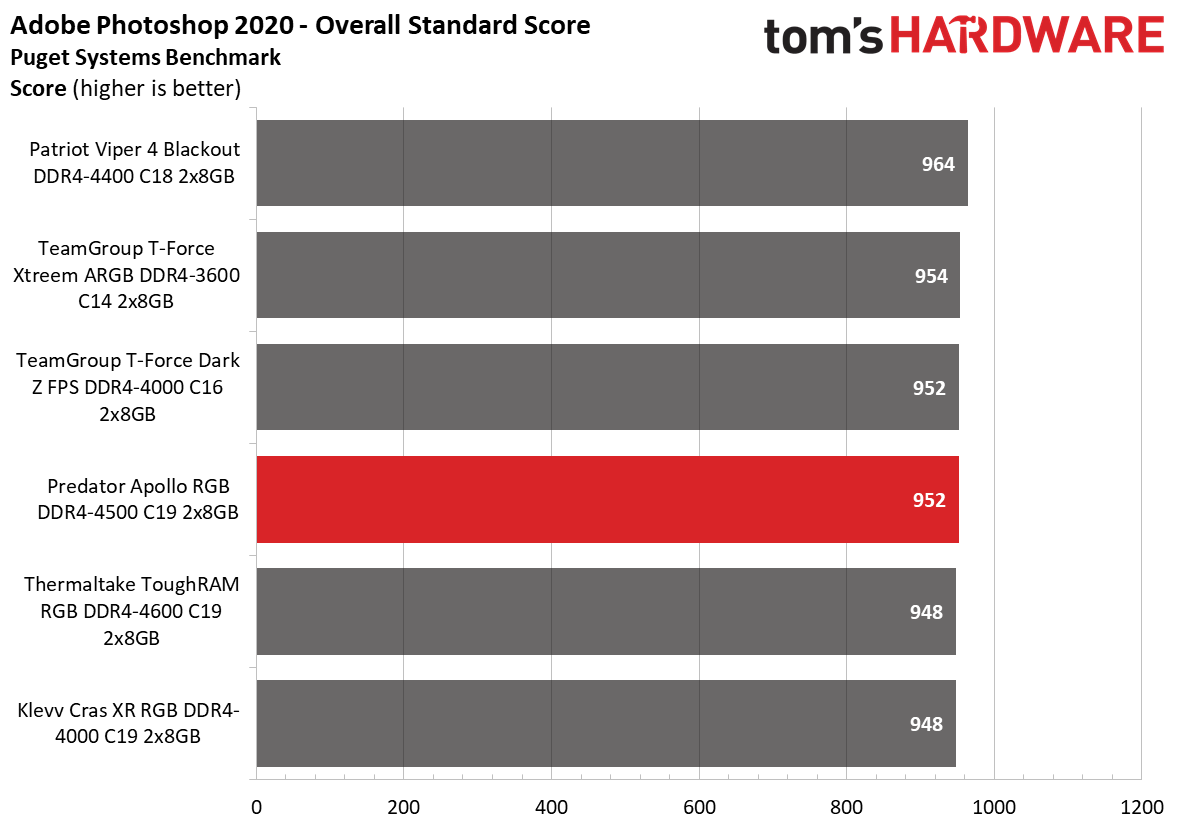
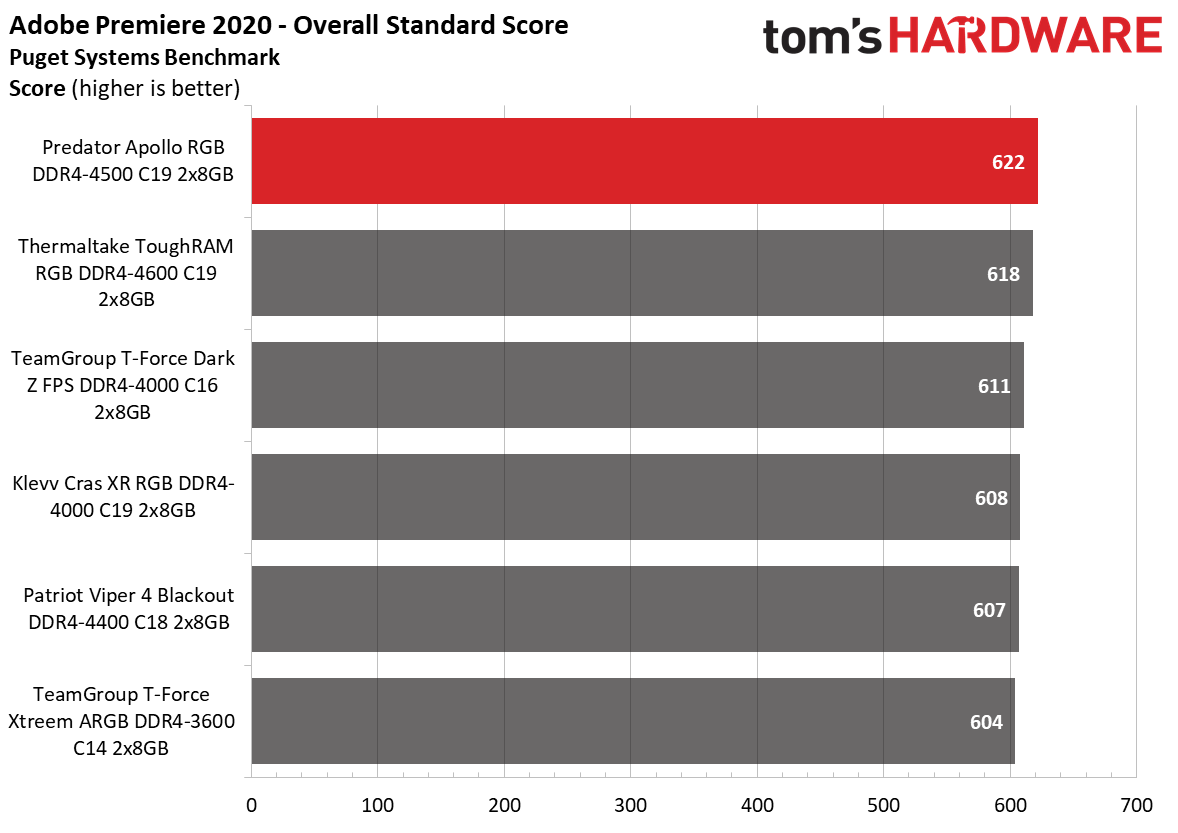
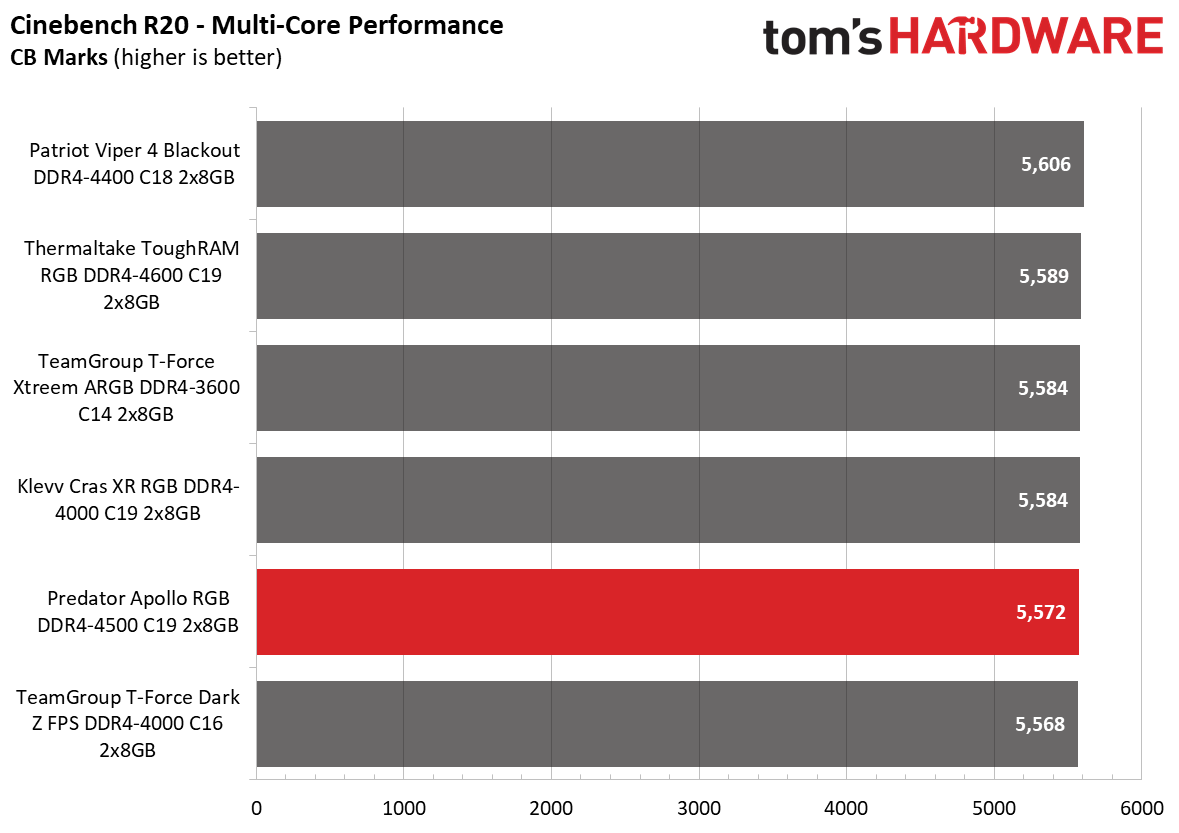
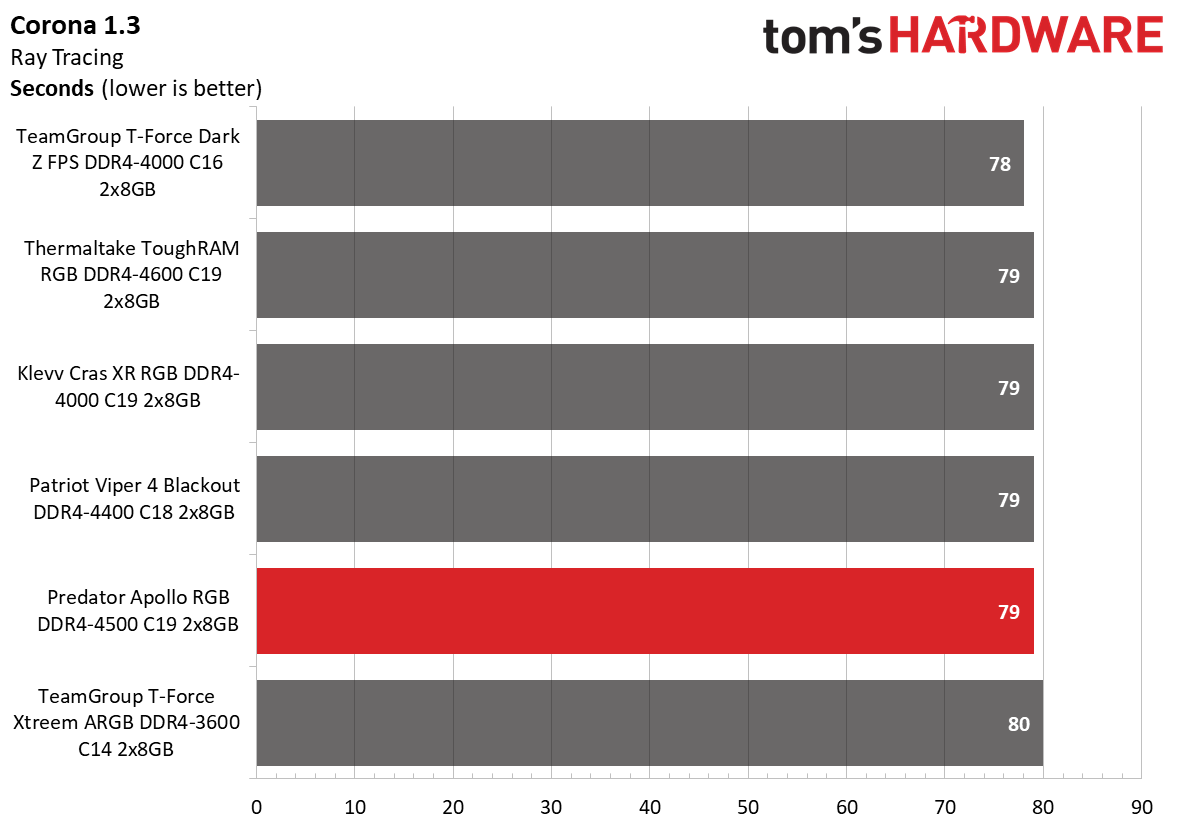
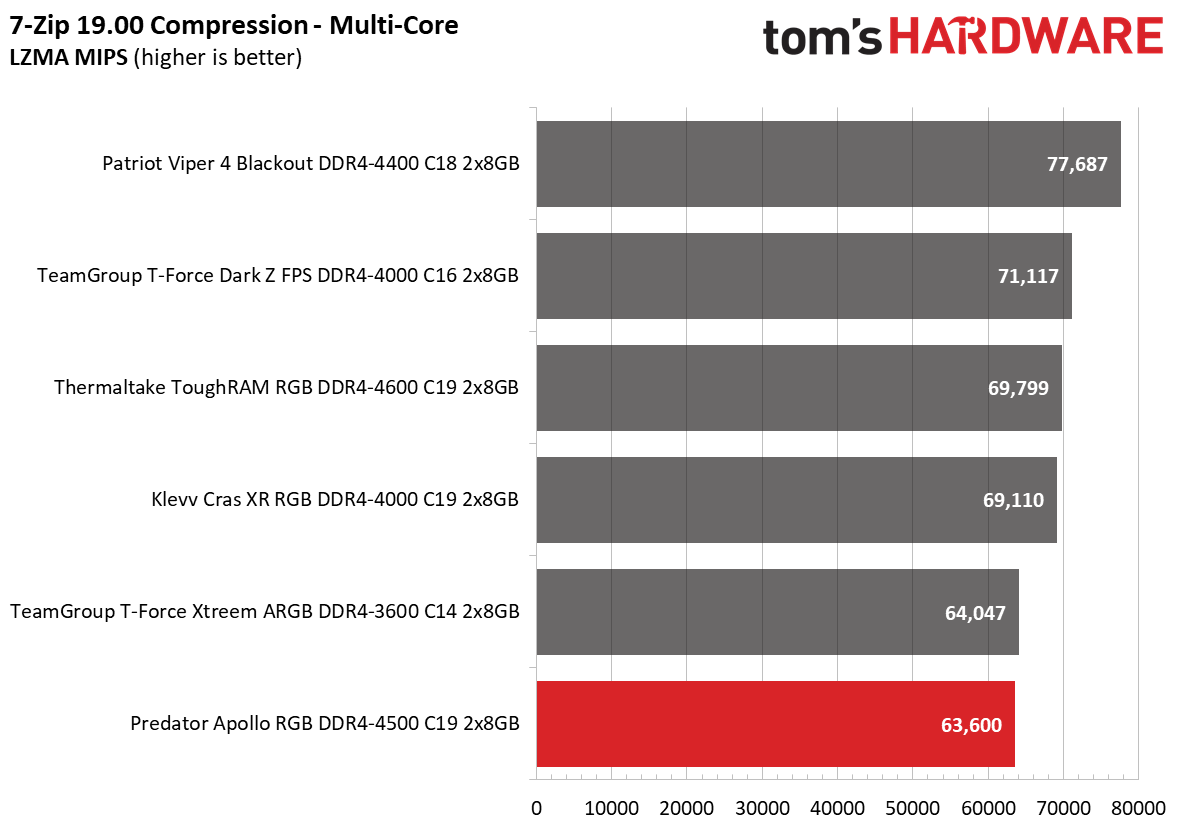

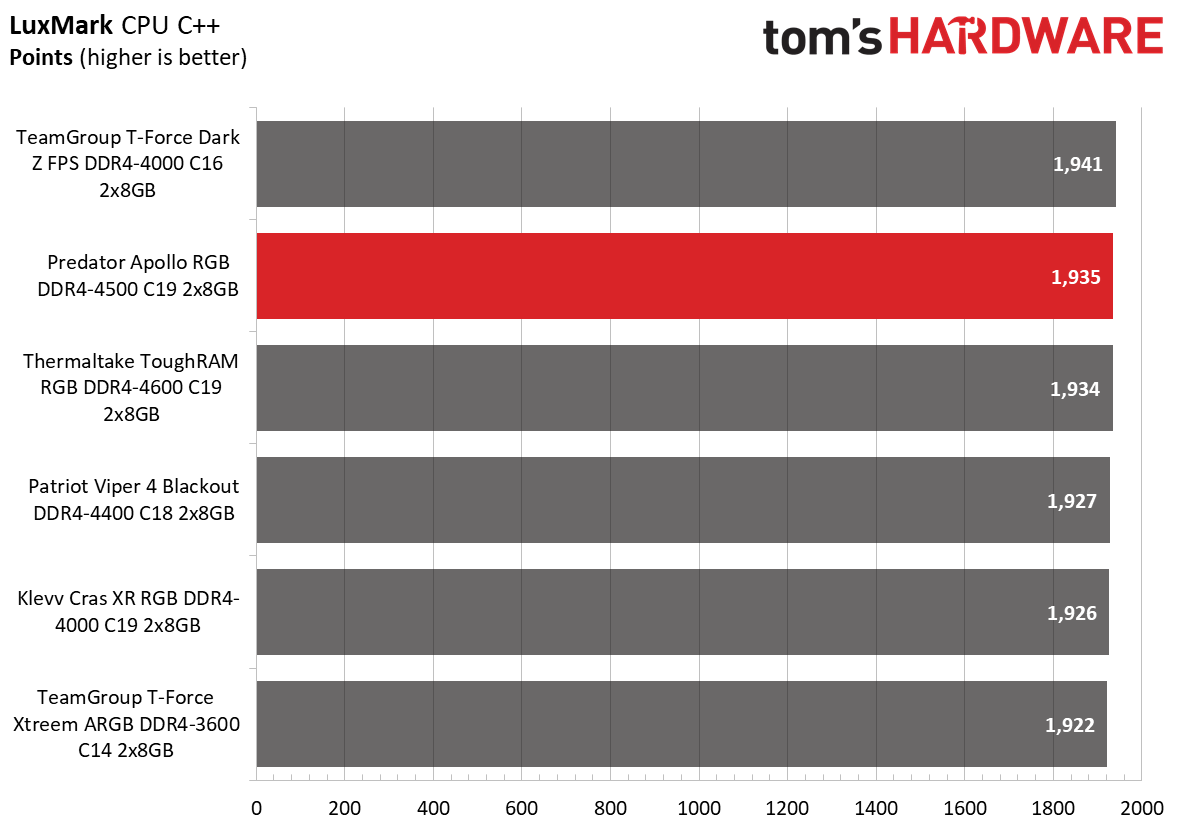
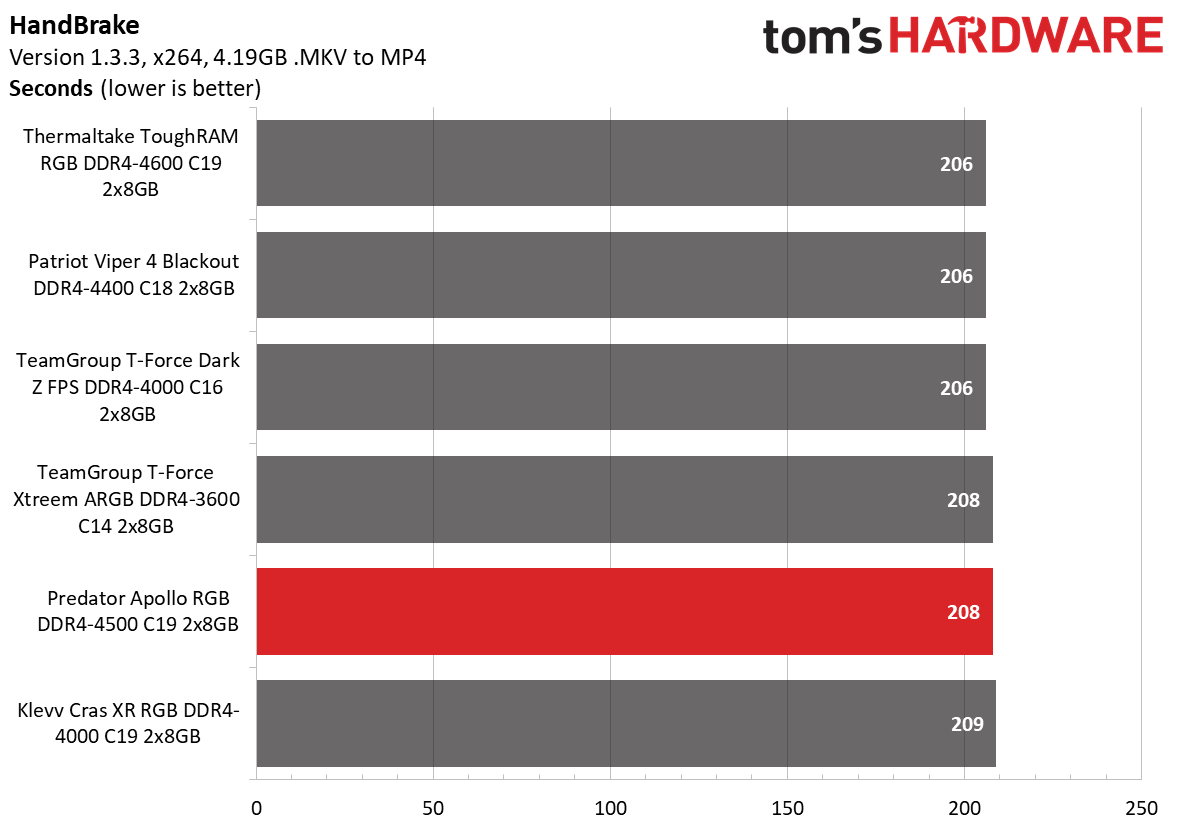
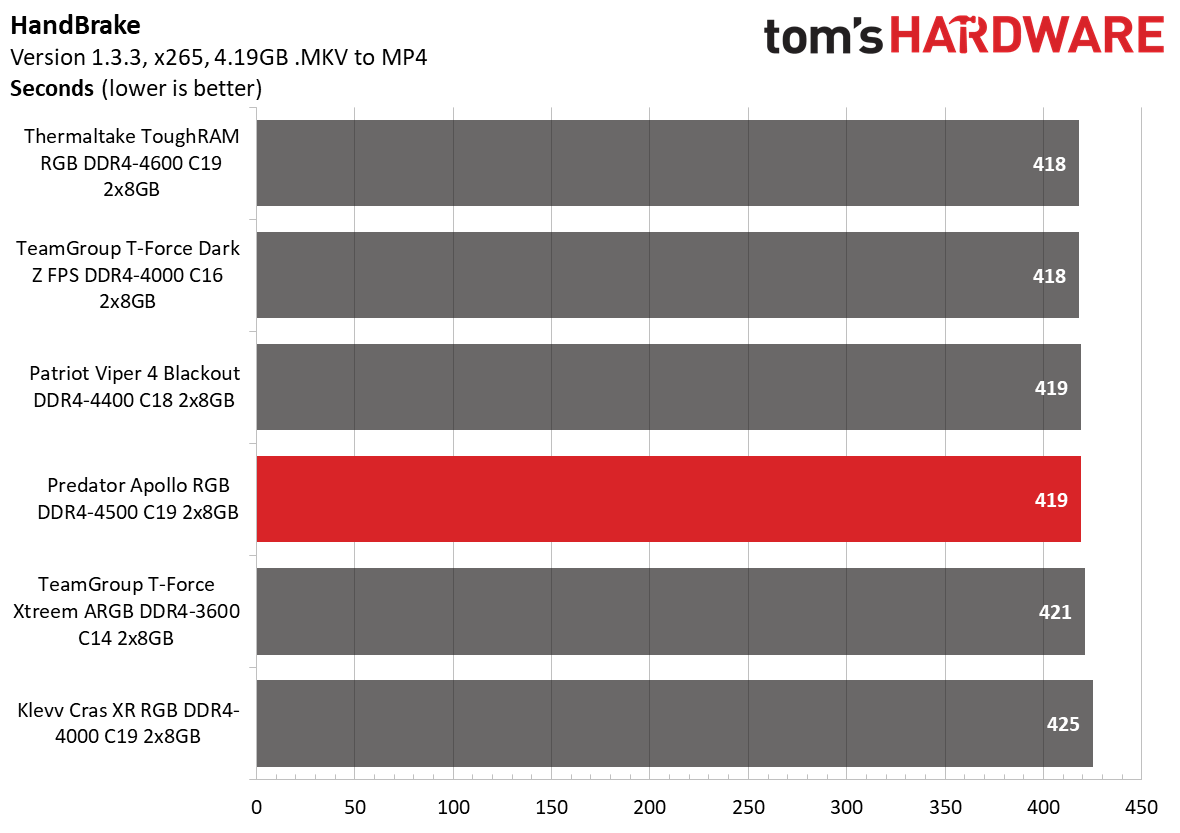
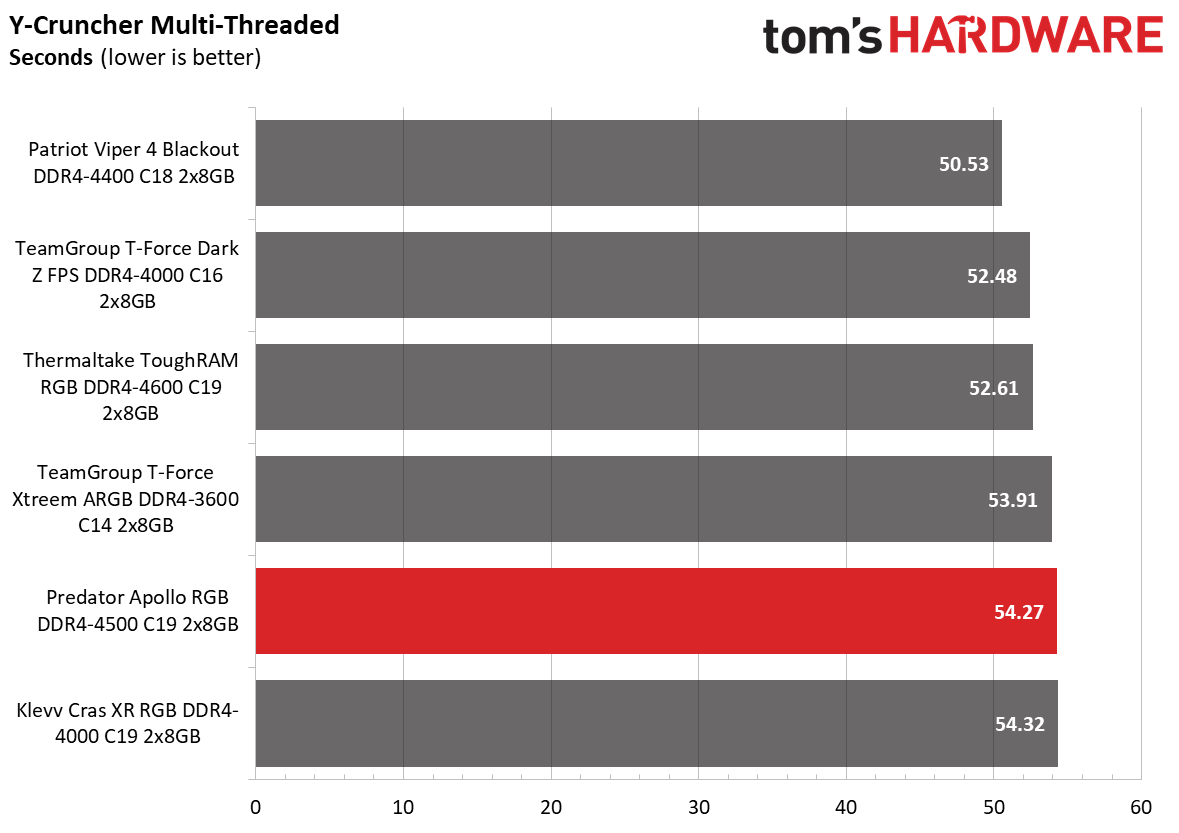
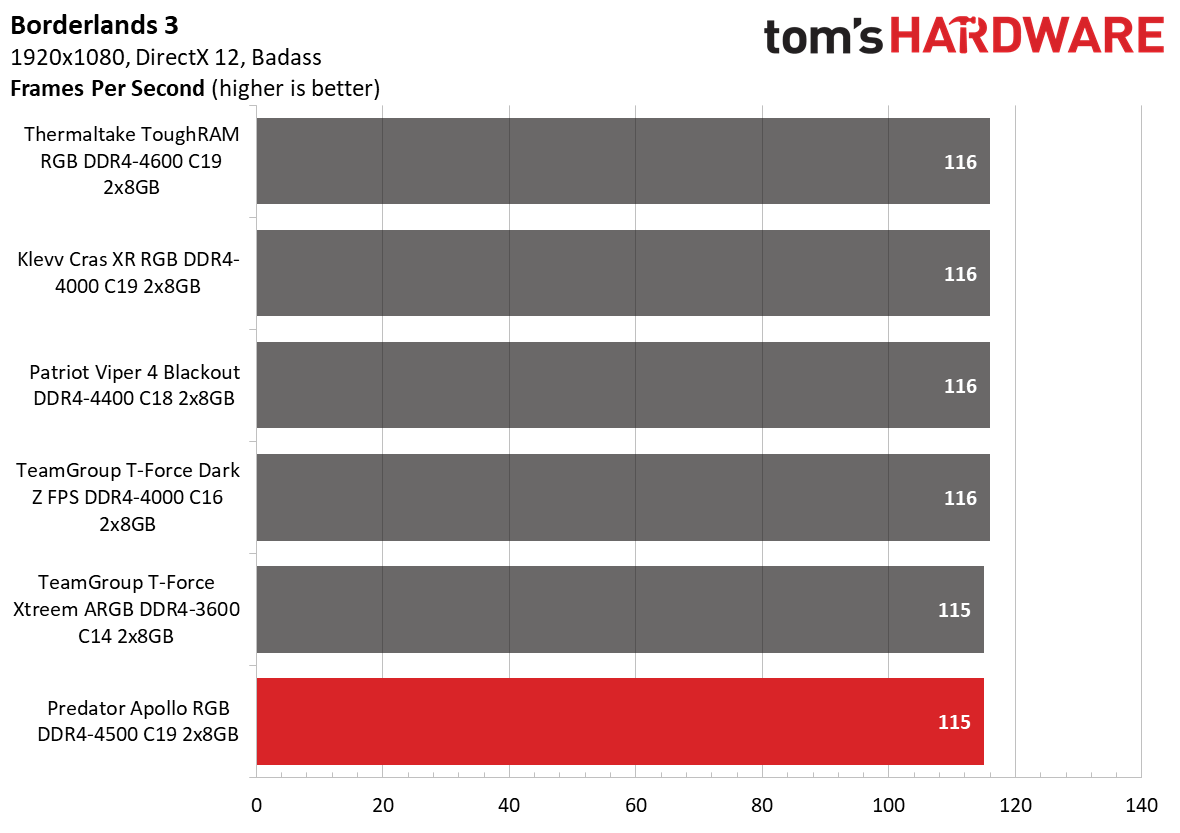
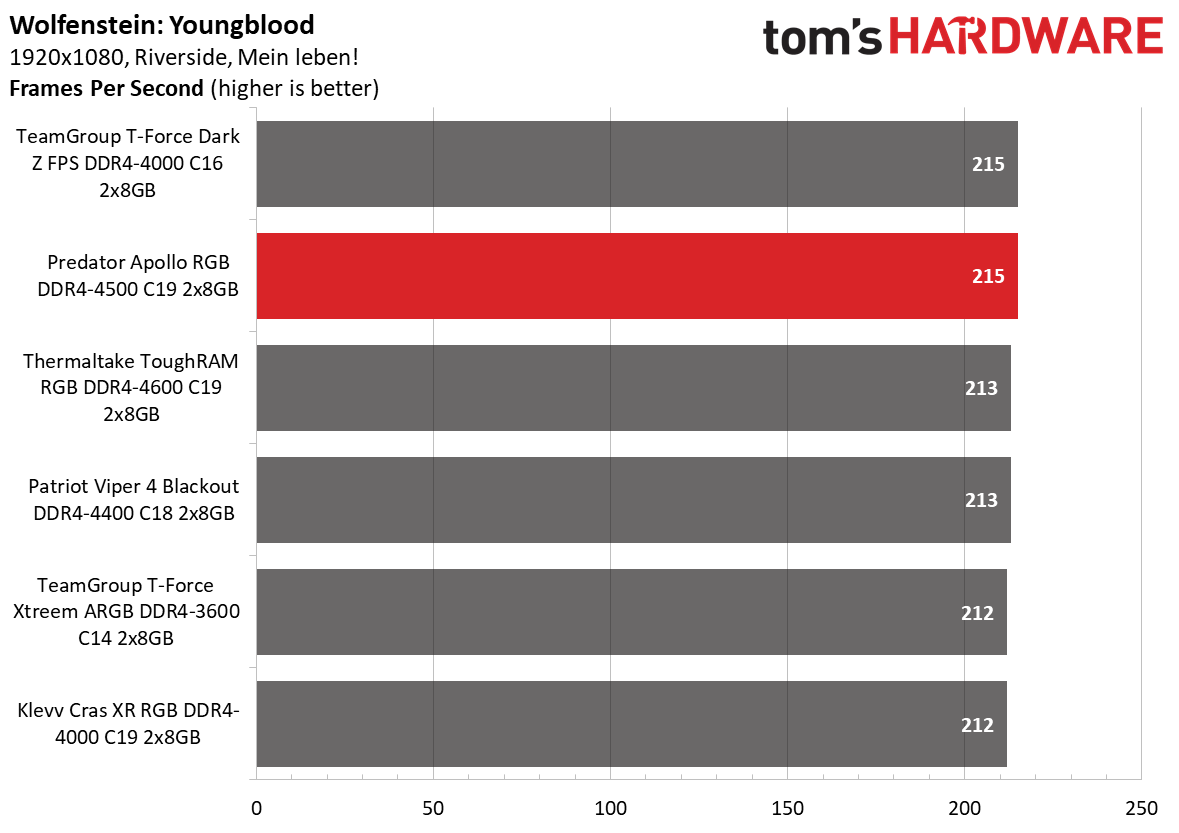
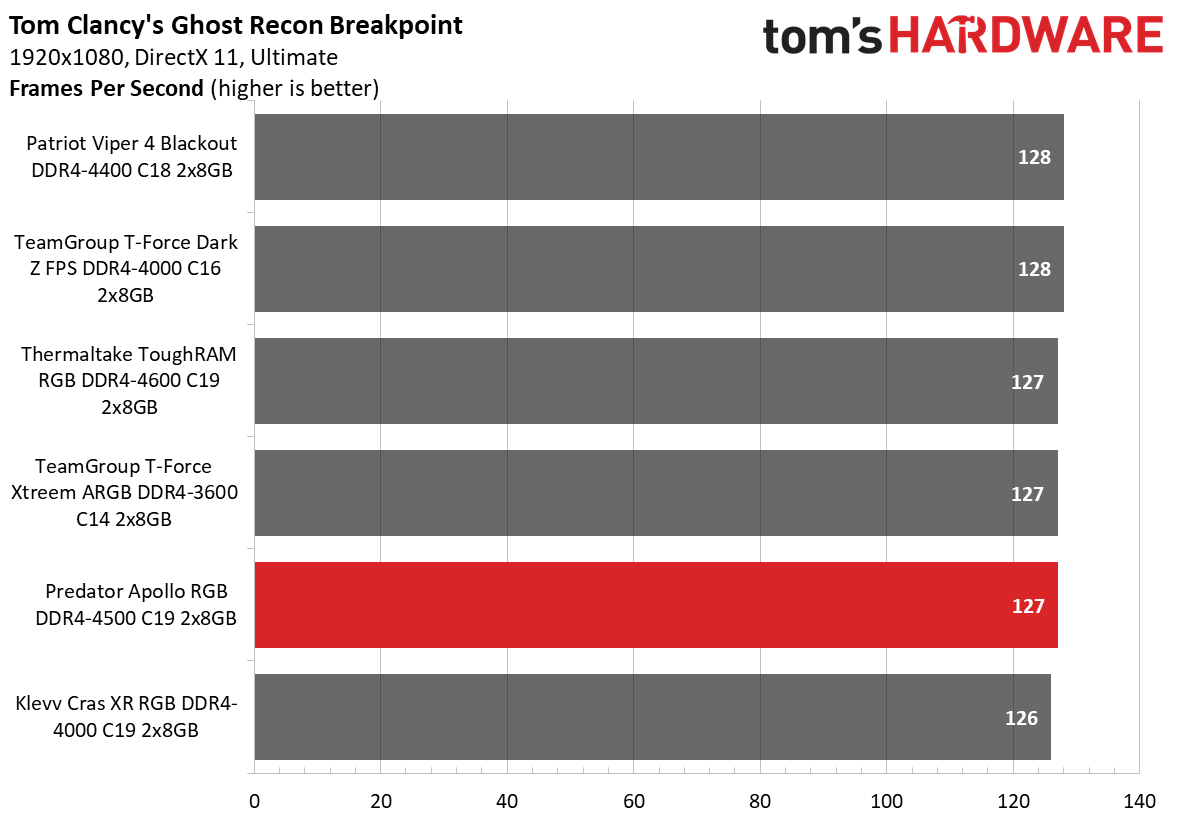
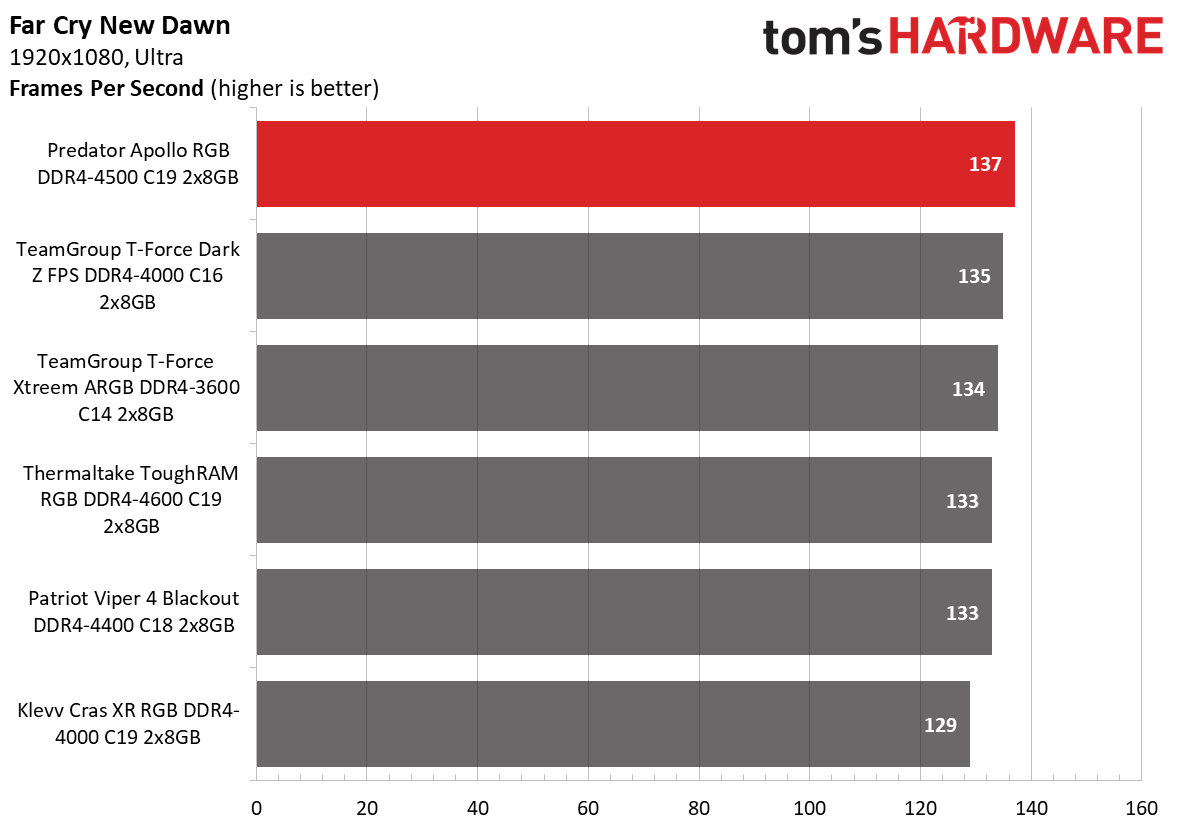
The Apollo RGB kit performed as expected on the Intel platform. The memory struggled against rivals with lower frequencies and optimized timings. However, it was surprising to see that the Apollo RGB even bested the T-Force Xtreem ARGB DDR4-3600 C14 kit, even if it's only by a couple of points. The Apollo RGB ranked second place in the gaming chart.
AMD Performance
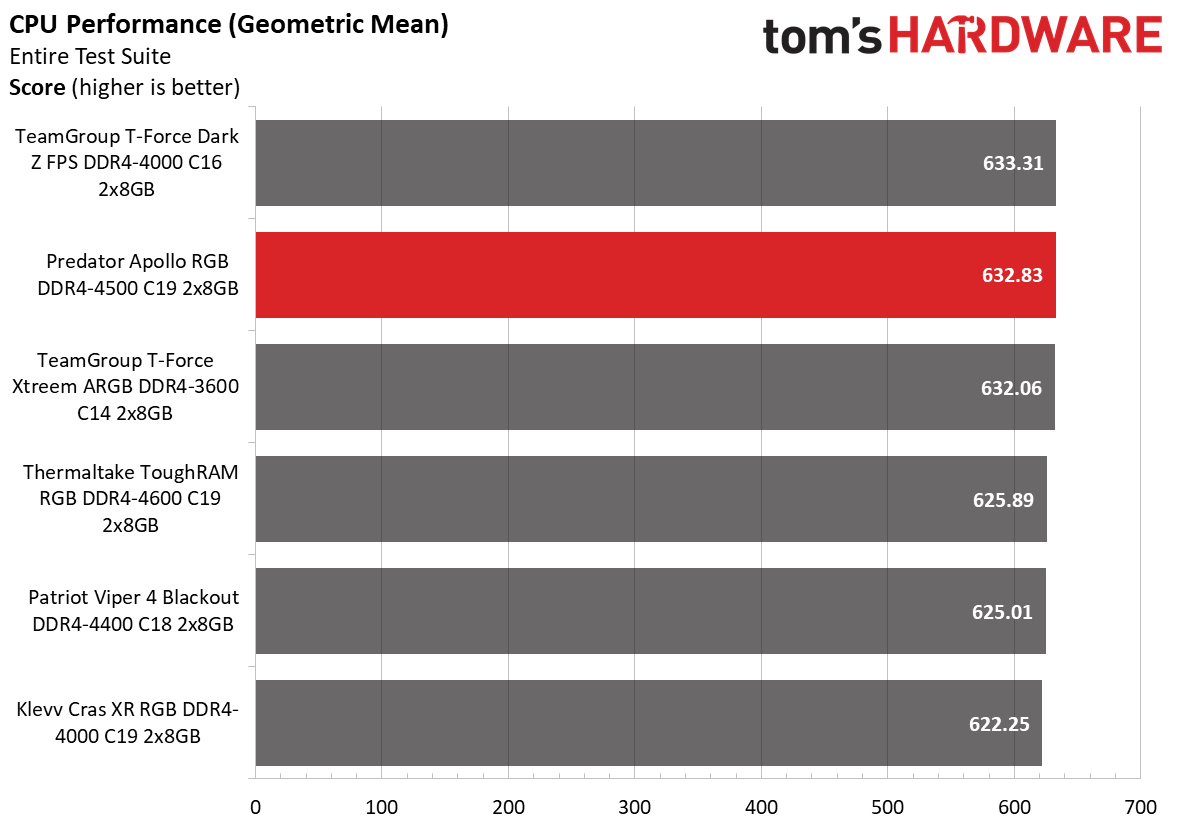
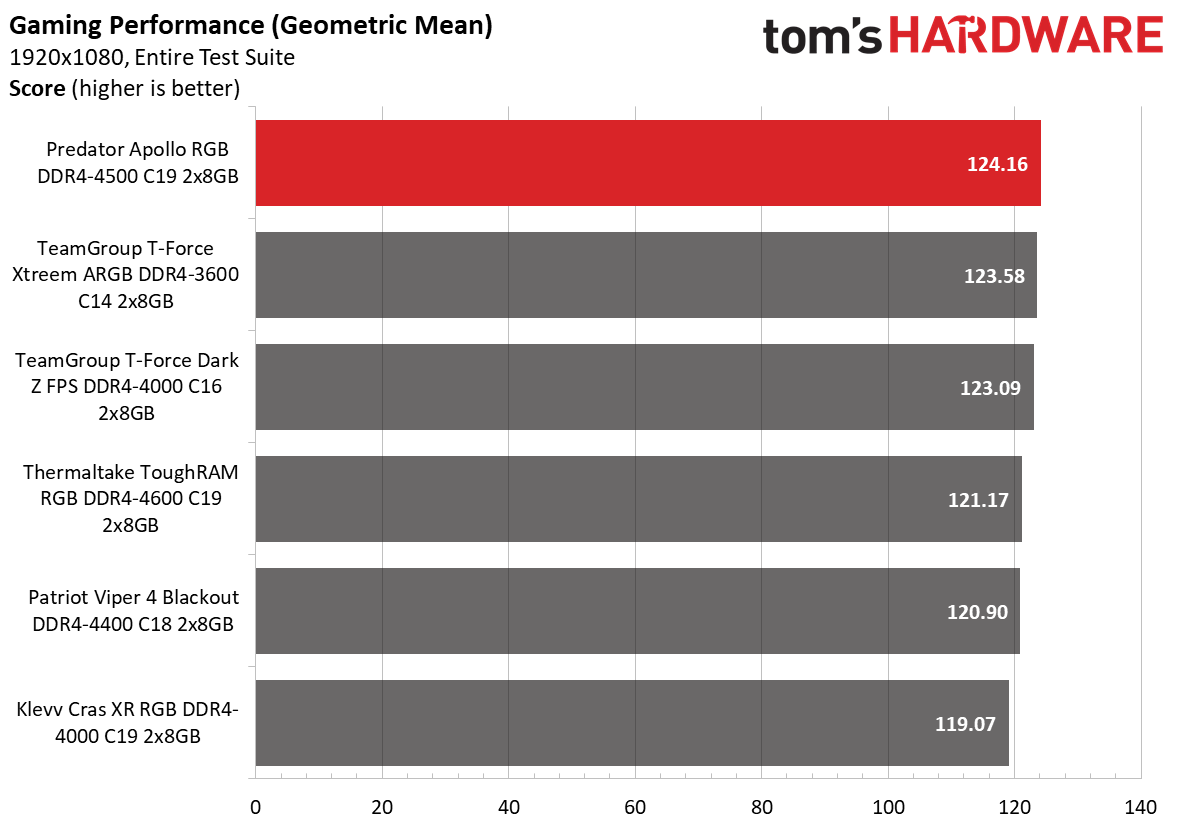
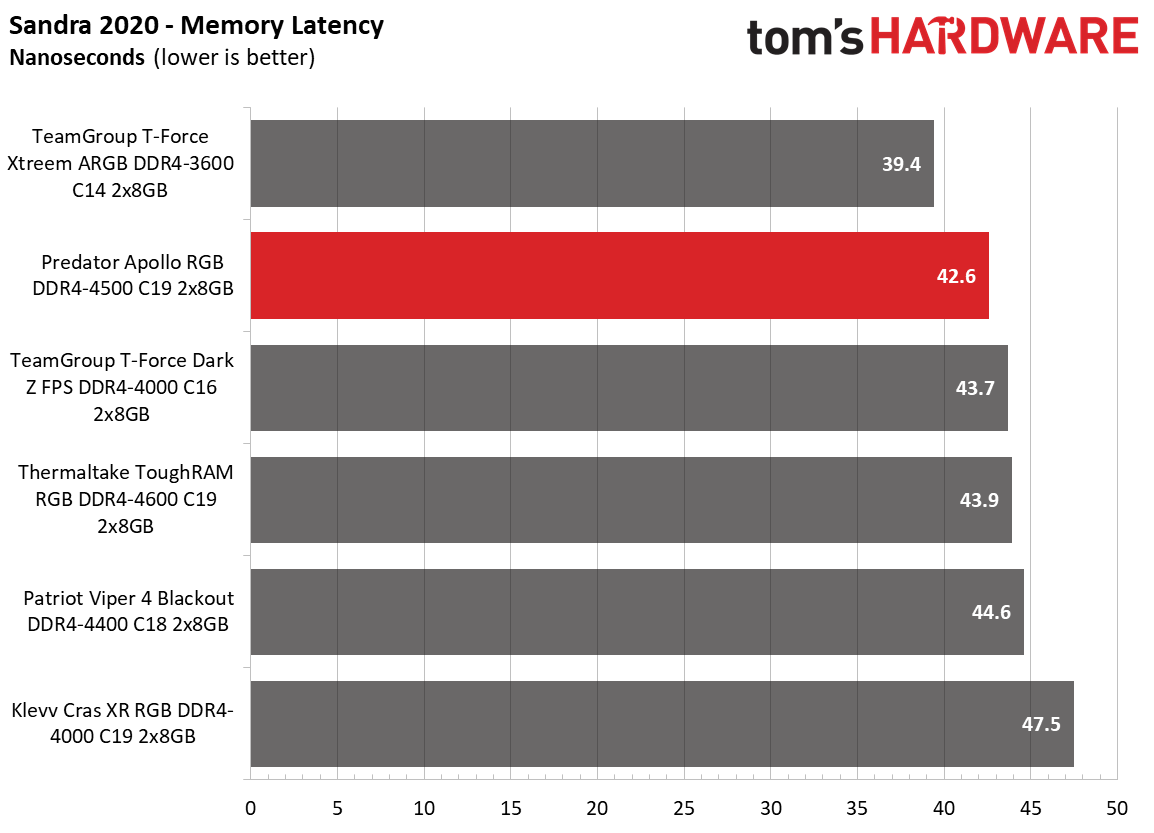
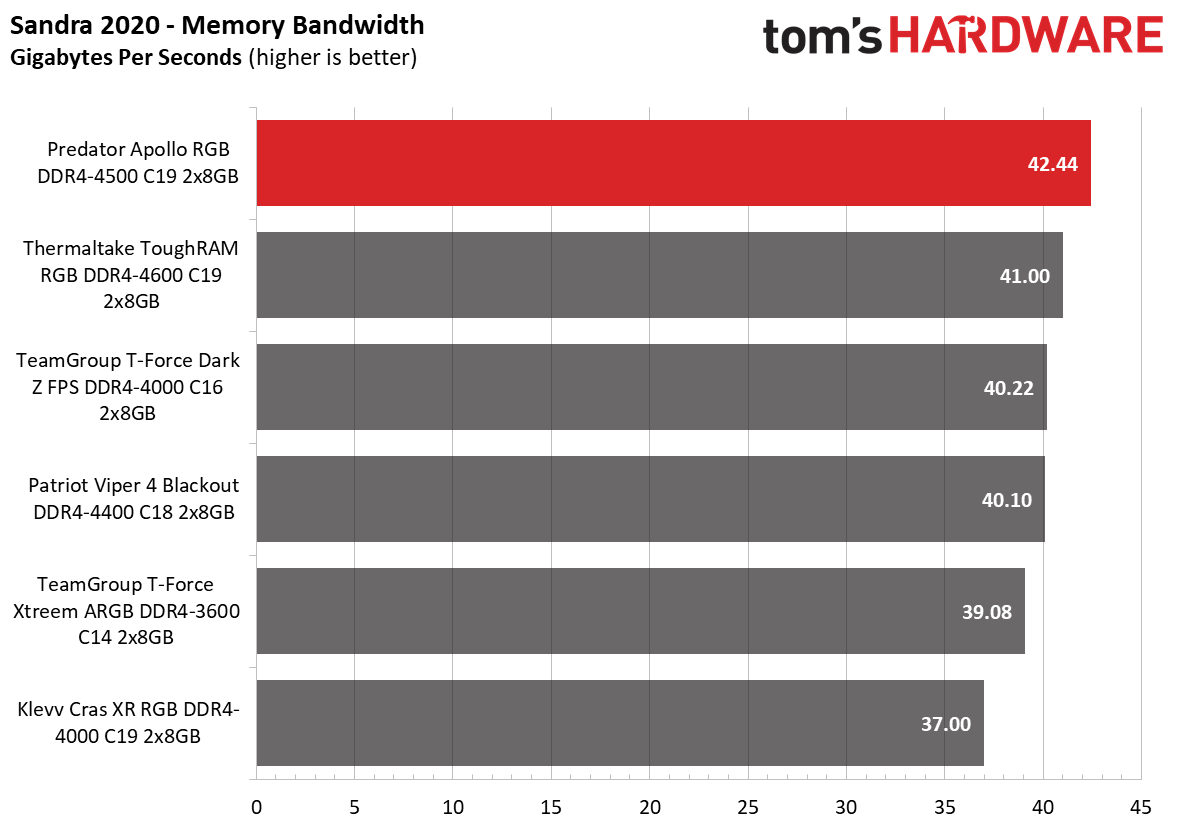
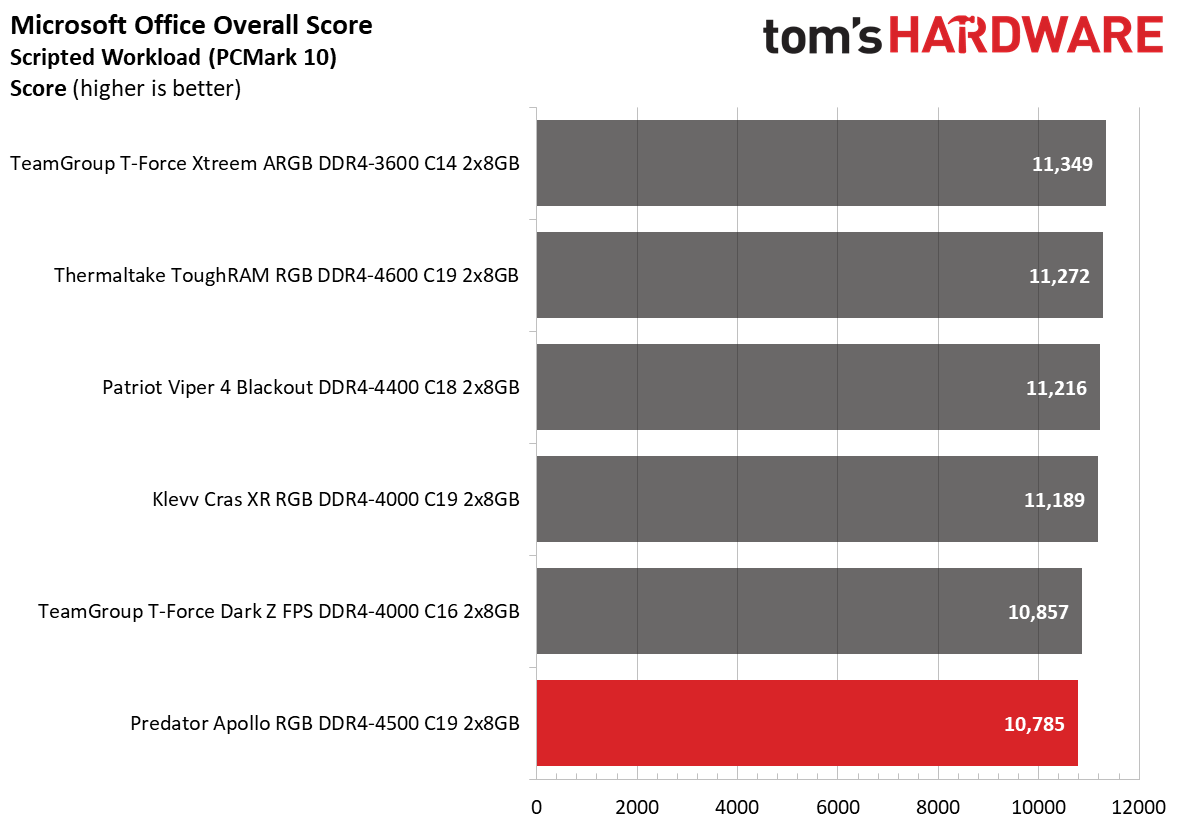
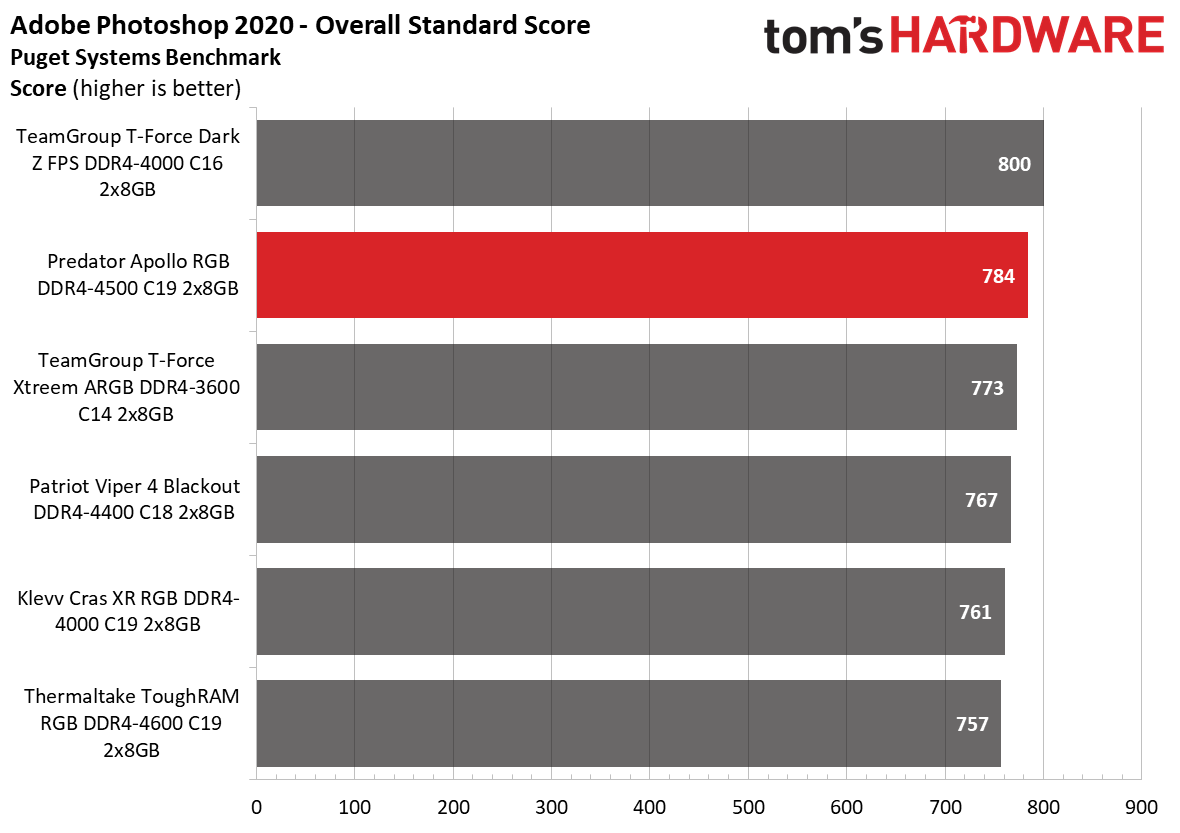
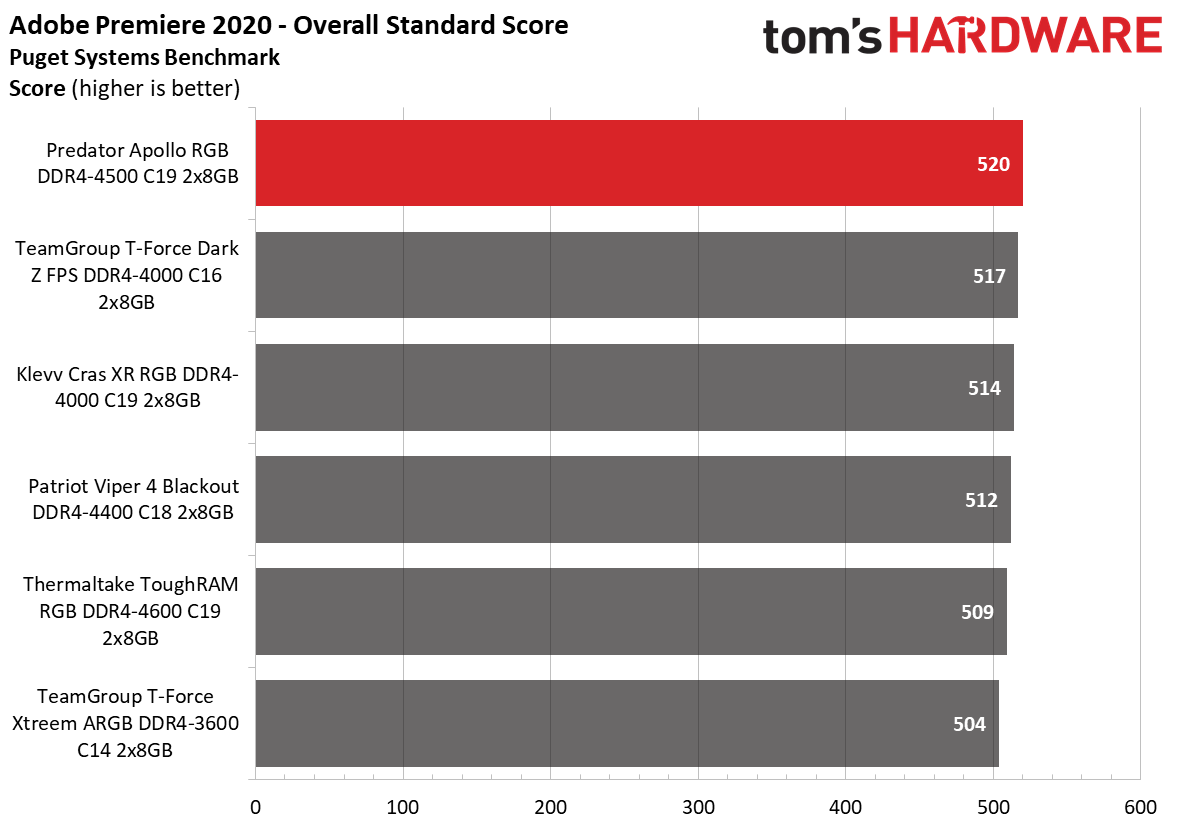
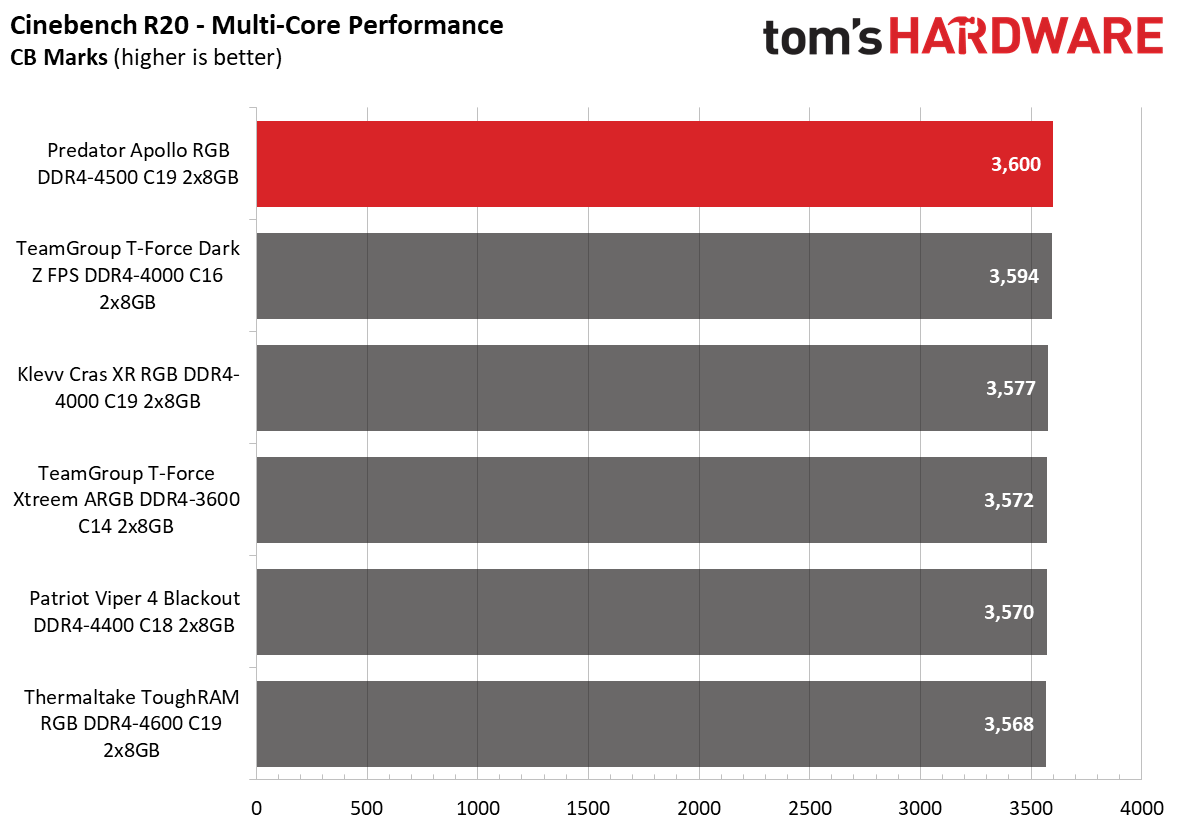
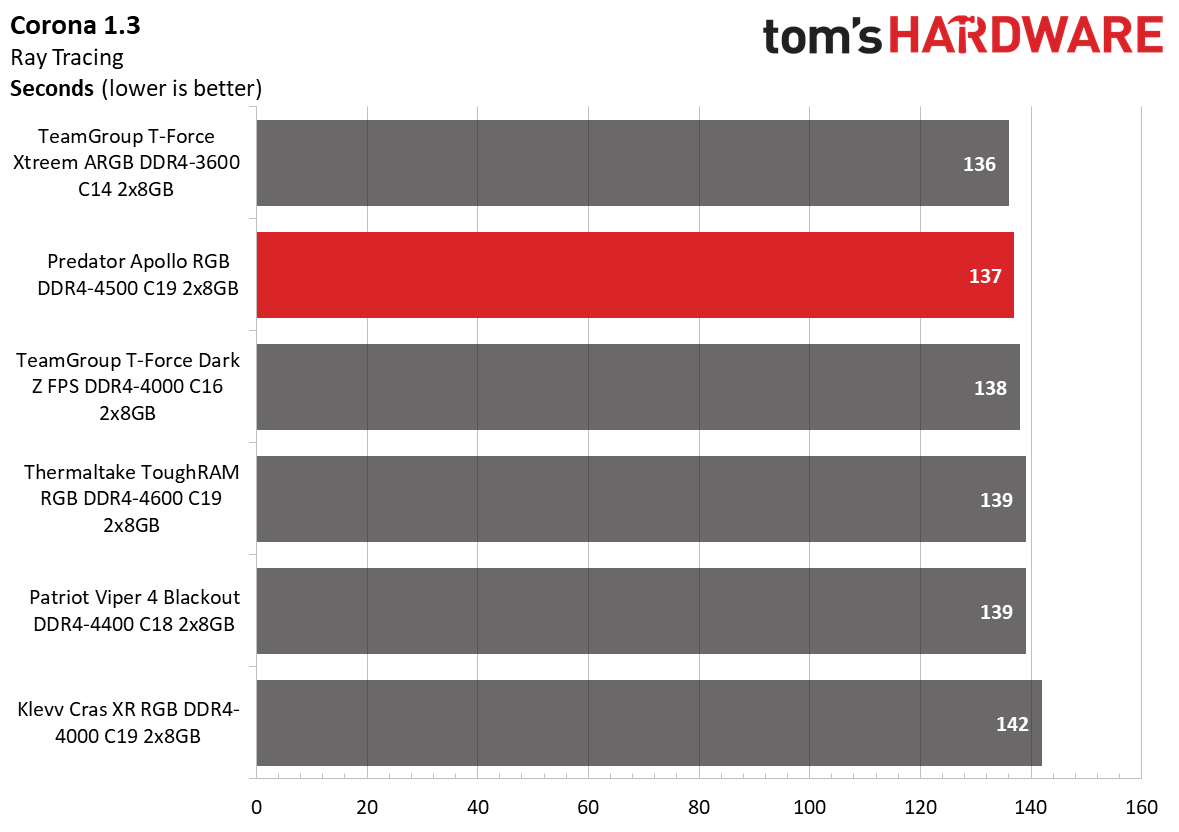
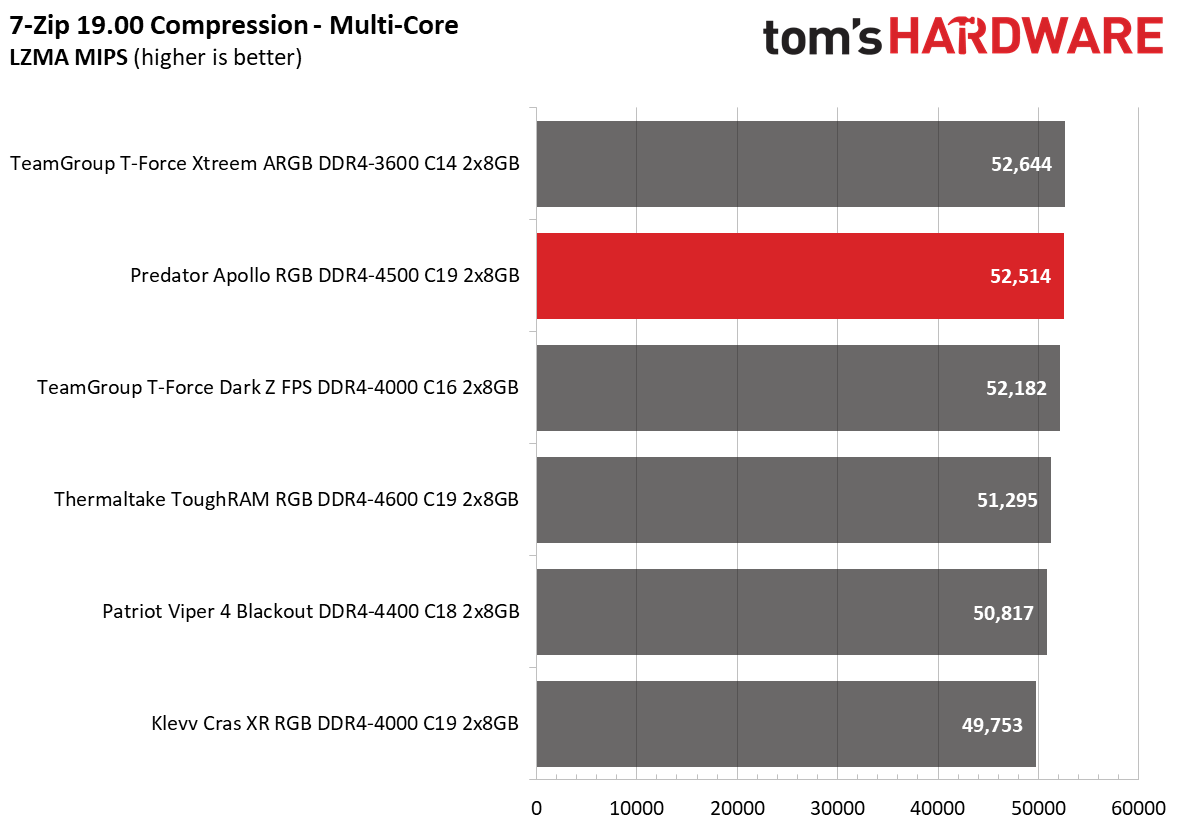
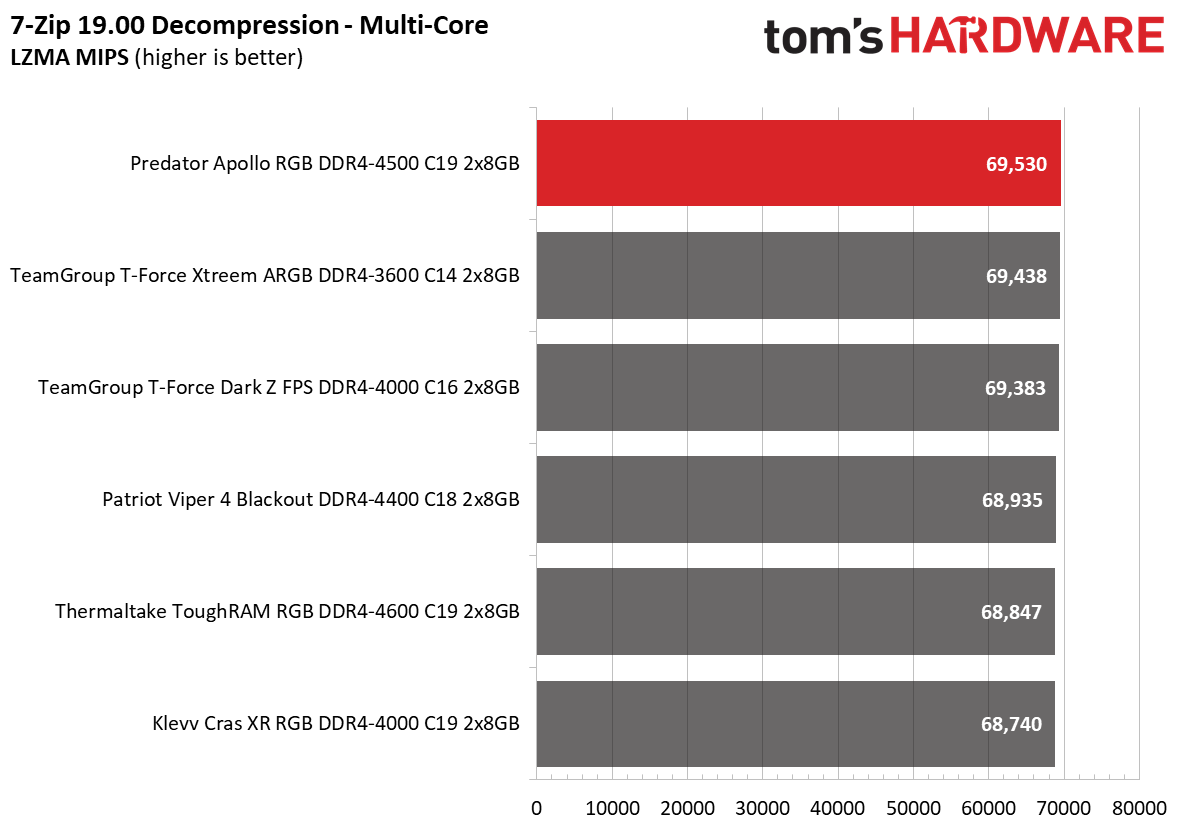
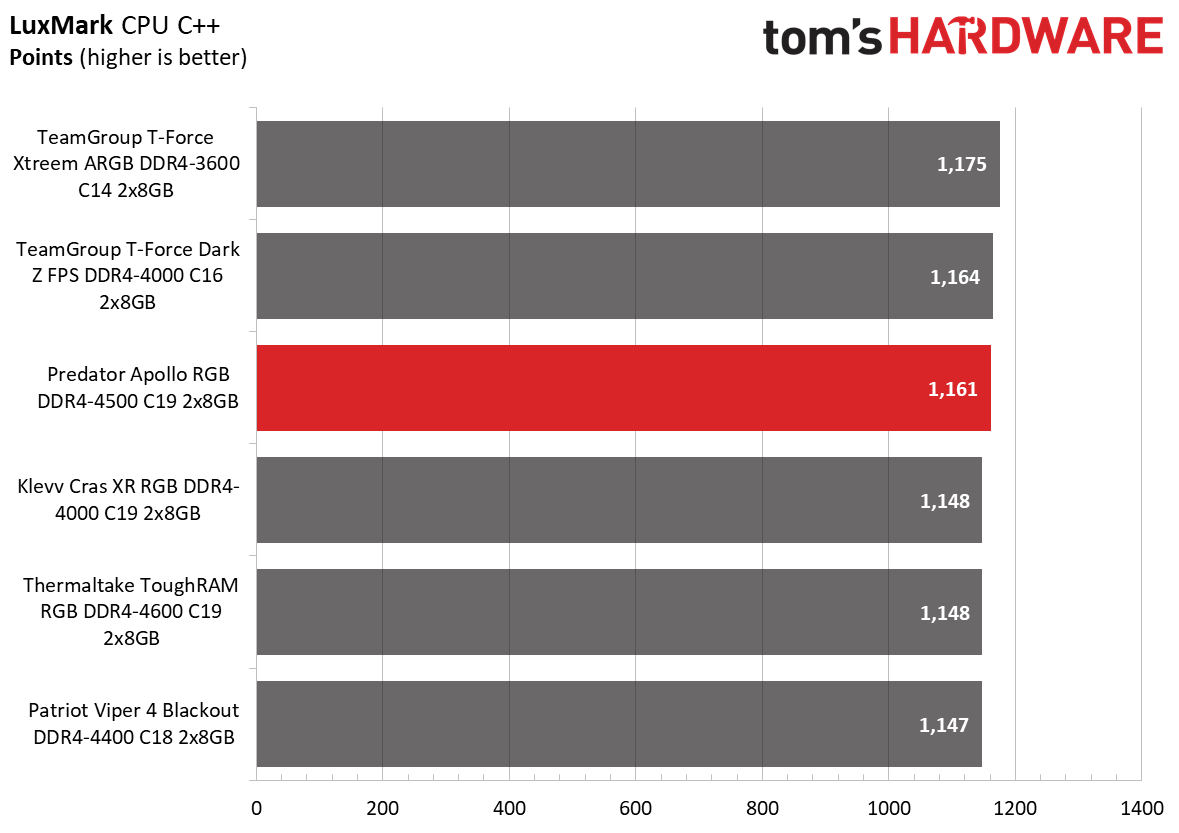
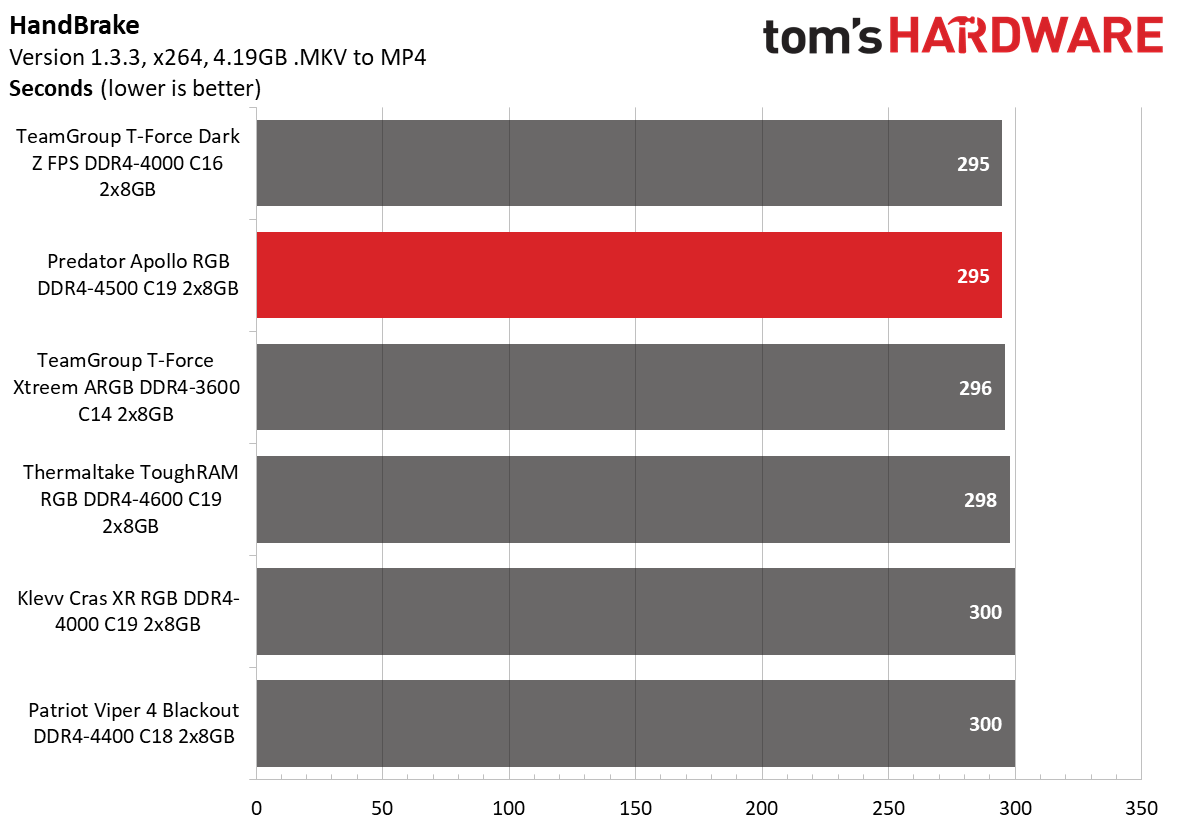
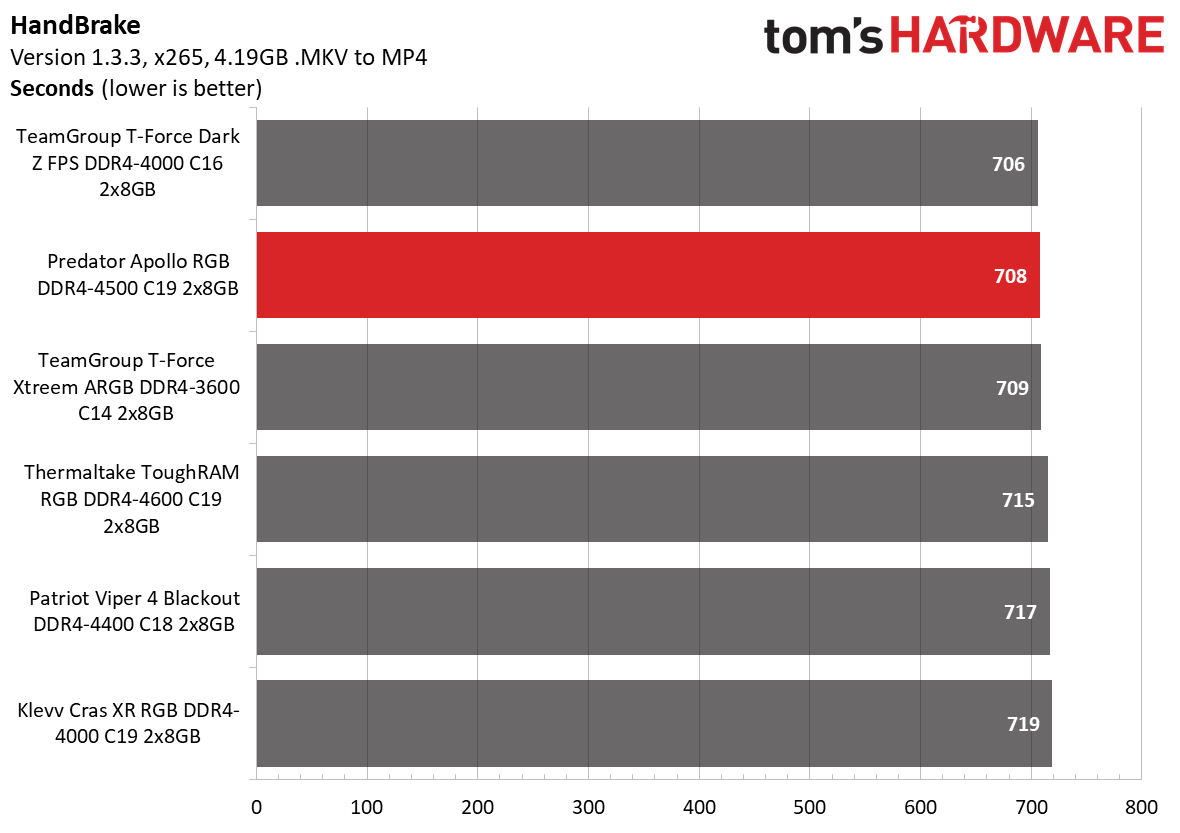
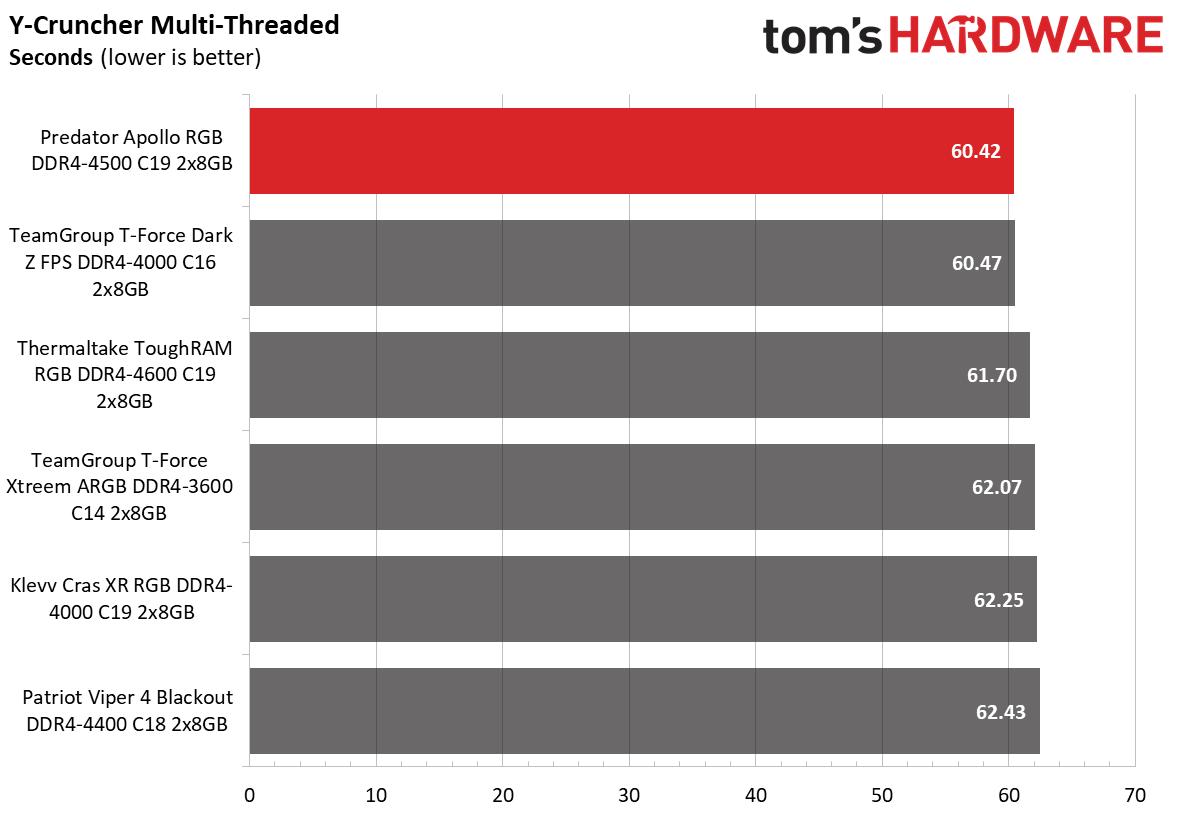
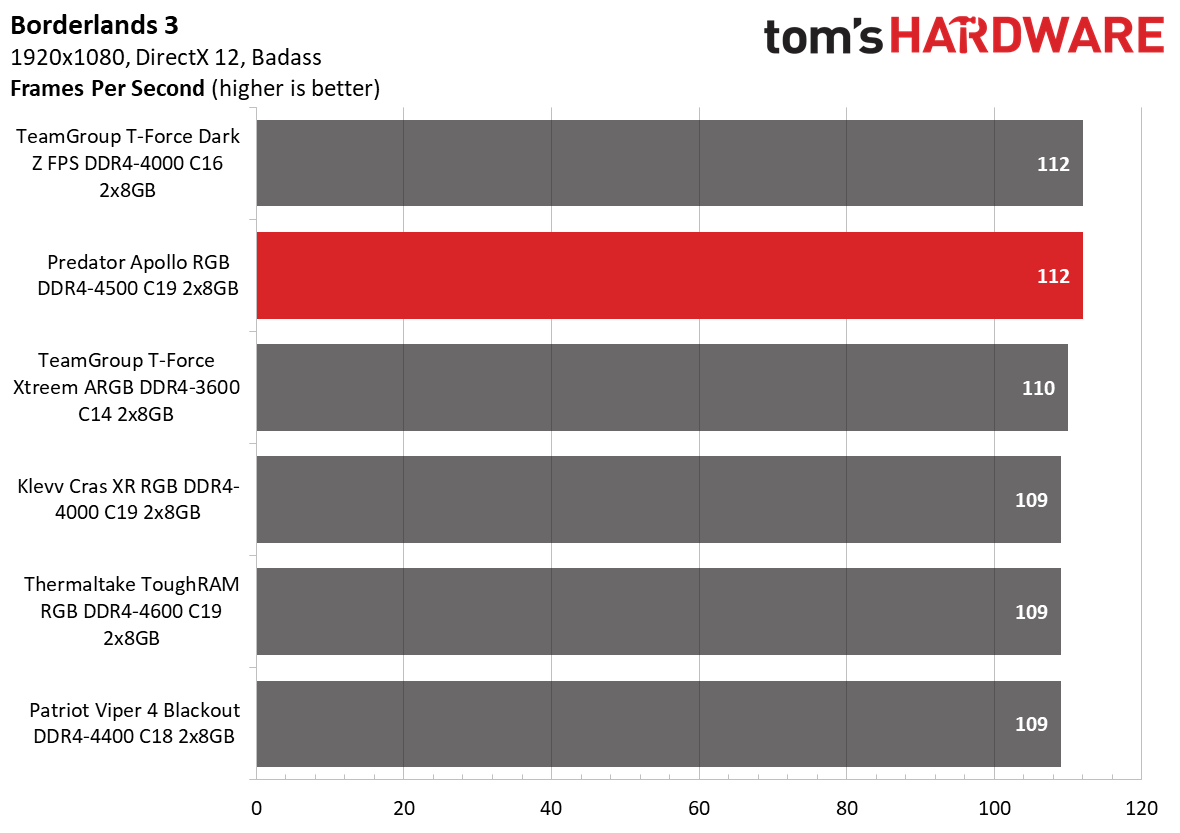

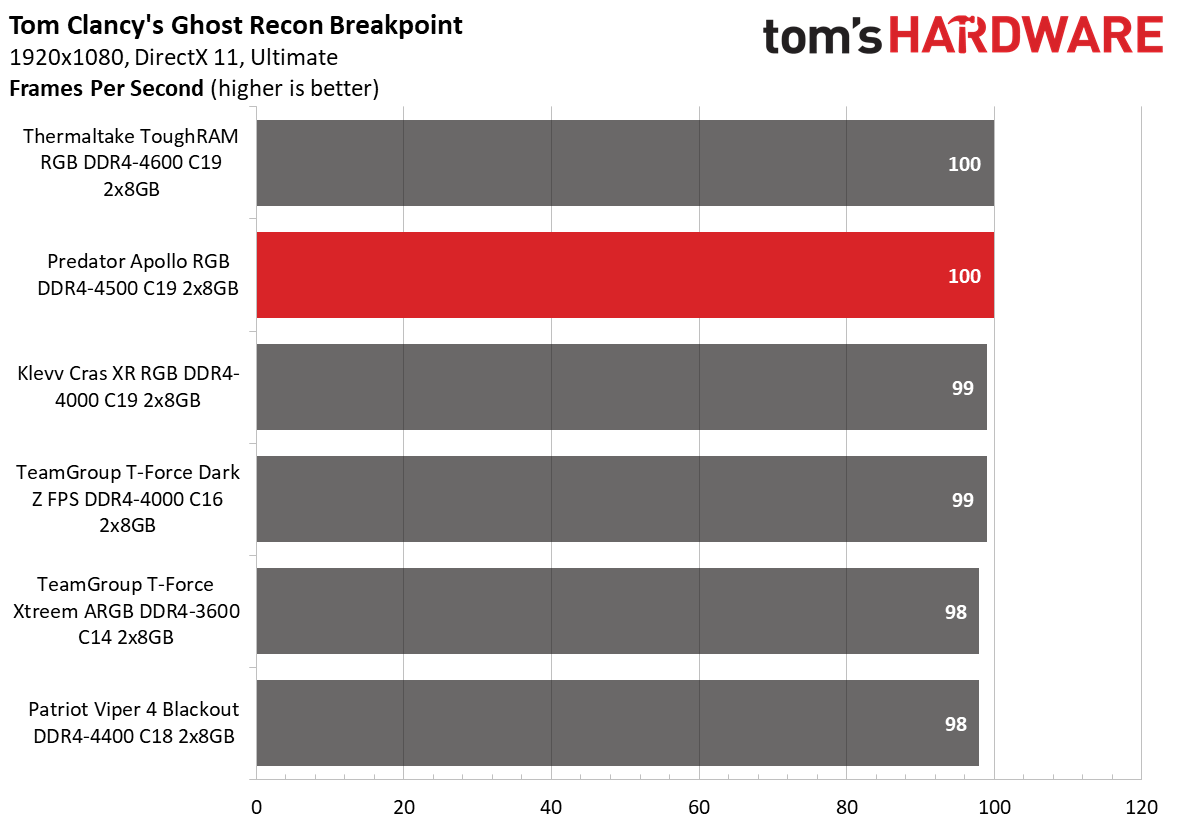
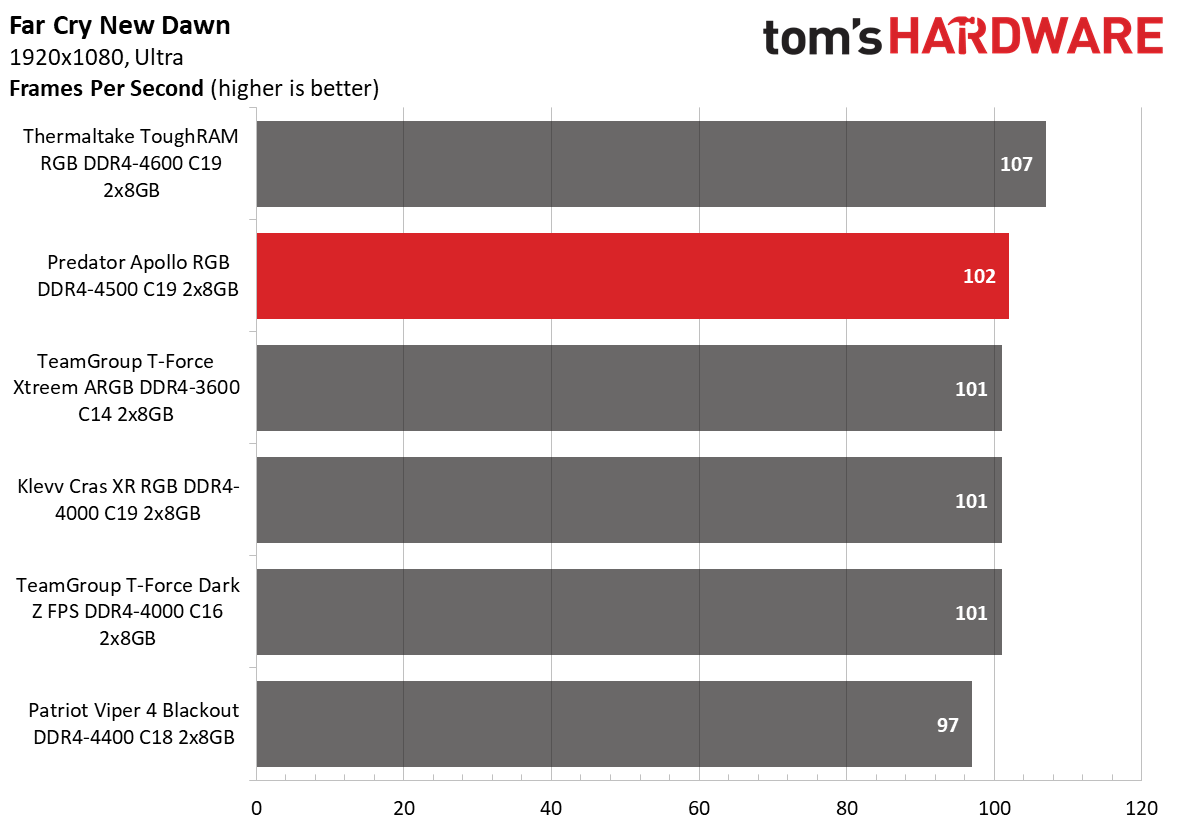
On the contrary, the Apollo RGB memory performed best on the AMD platform. The memory kit managed to defeat all the memory kits, except for the T-Force Dark Z FPS DDR4-4000 C16 memory kit. Gaming on the AMD platform also favored Predator Storage's kit as it jumped up to the top of the gaming chart.
Overclocking and Latency Tuning
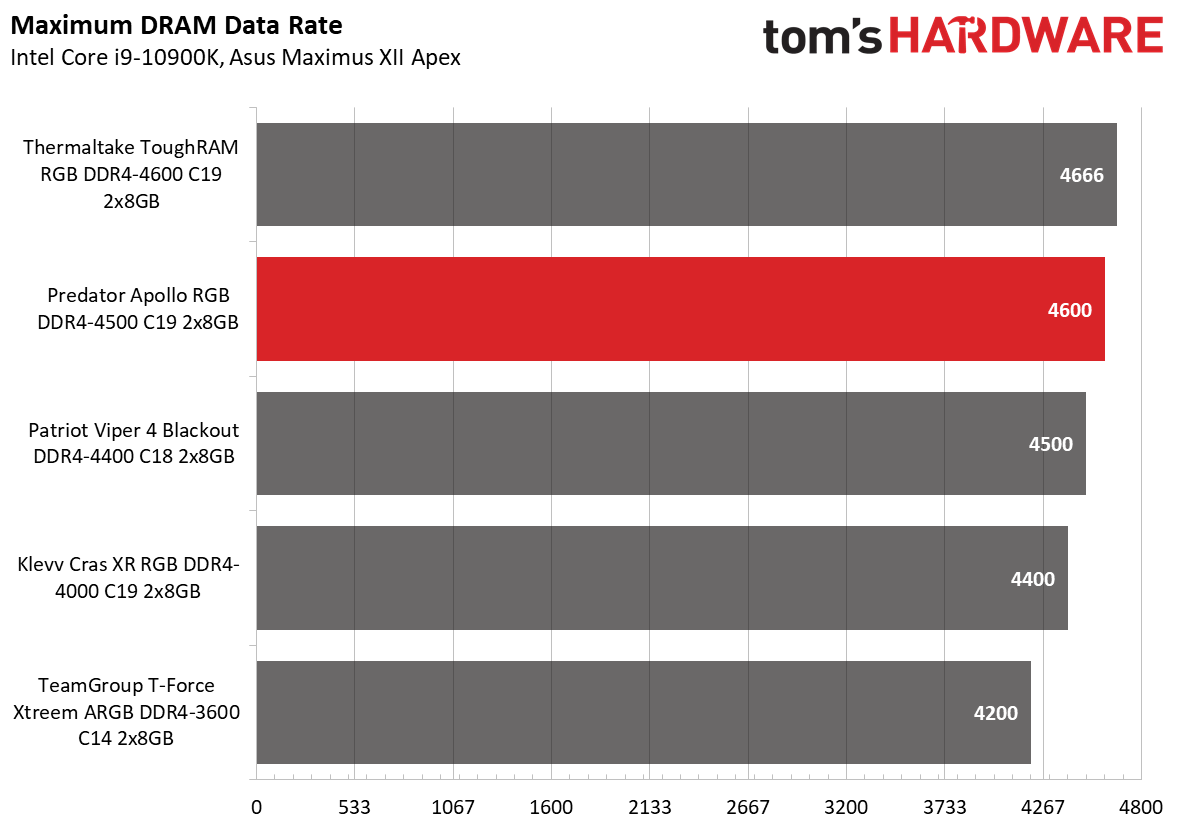
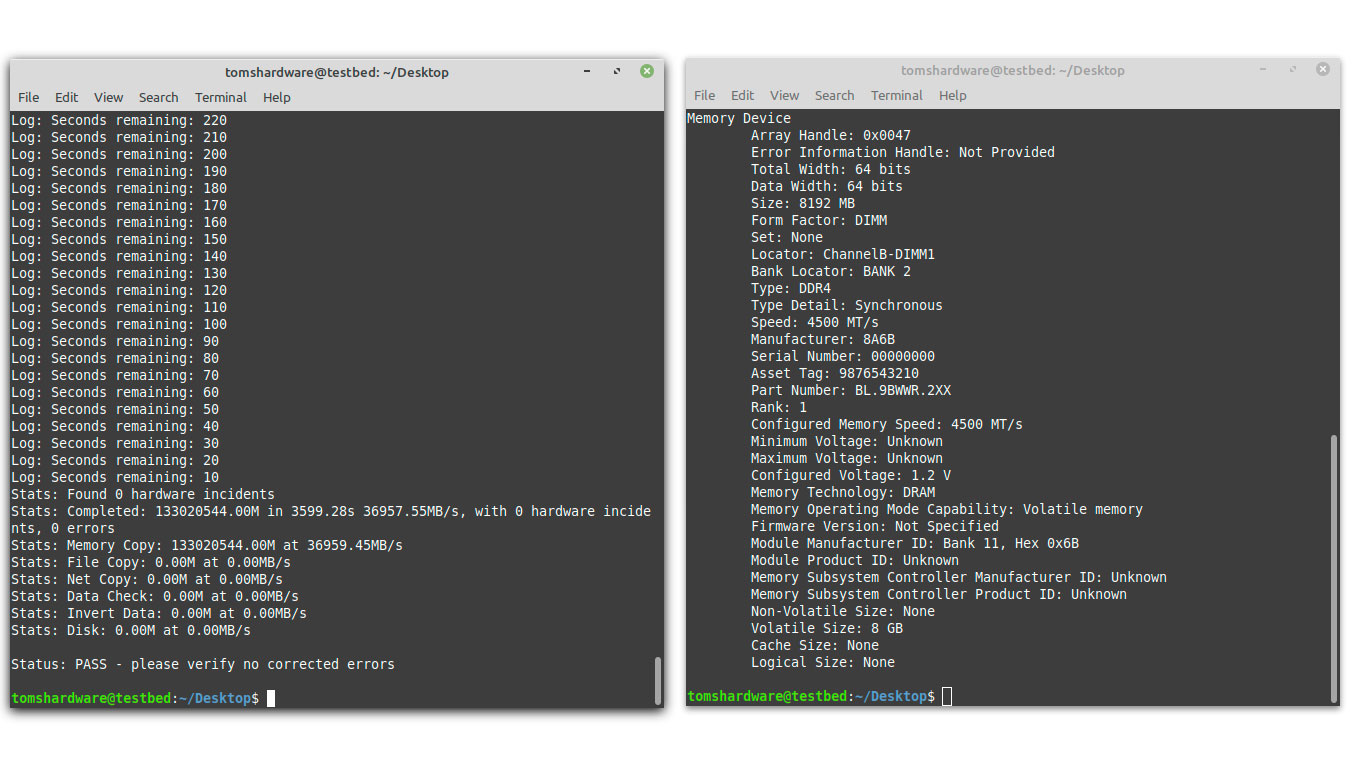
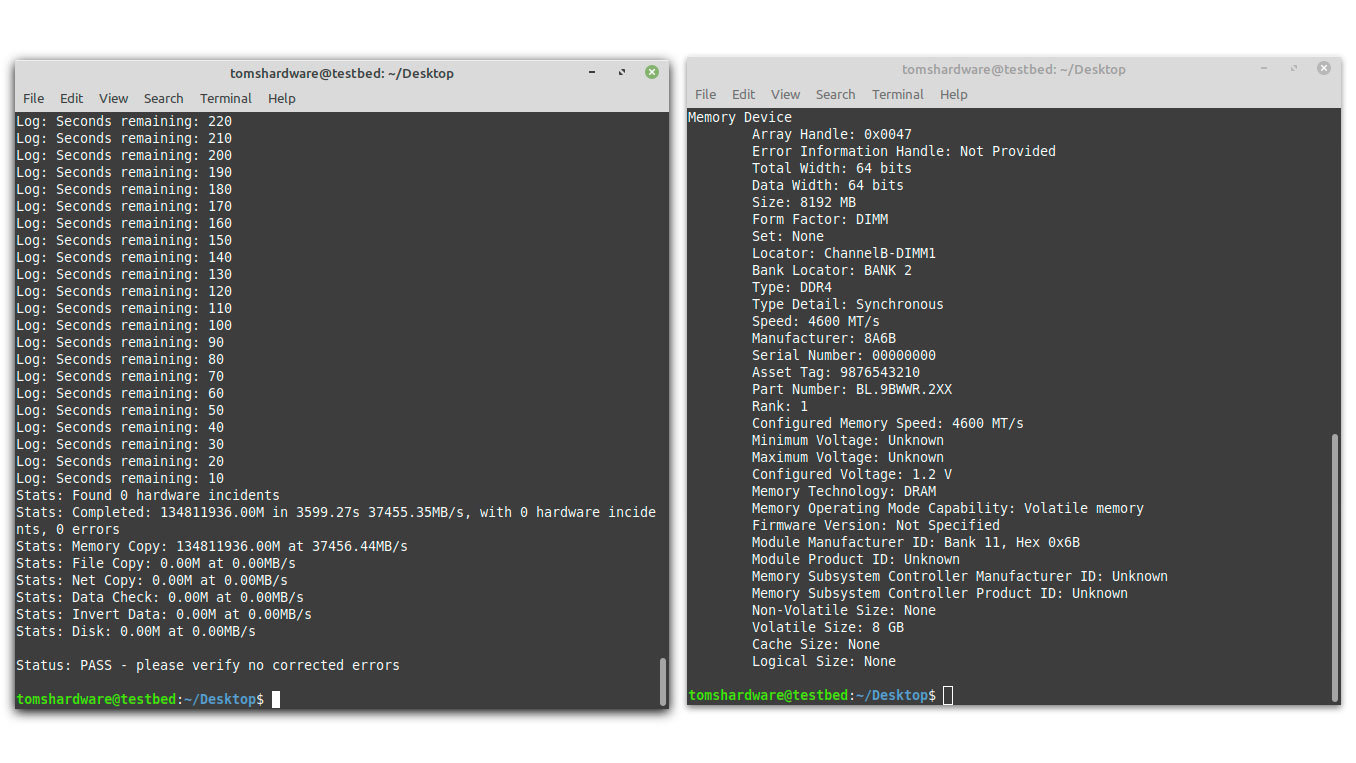
Despite leveraging Samsung B-die ICs, increasing the DRAM voltage to 1.5V didn't get us anywhere. Bumping it to 1.55V, however, allowed us to overclock the memory to DDR4-4600. In the process, we also dropped the timings from 19-19-19-39 to 18-18-18-38.
Lowest Stable Timings
| Memory Kit | DDR4-3600 (1.46V) | DDR4-4000 (1.45V) | DDR4-4200 (1.45V) | DDR4-4400 (1.45V) | DDR4-4500 (1.55V) | DDR4-4600 (1.55V) | DDR4-4666 (1.56V) |
|---|---|---|---|---|---|---|---|
| Thermaltake ToughRAM RGB DDR4-4600 C19 | N/A | N/A | N/A | N/A | N/A | 18-24-24-44 (2T) | 20-26-26-45 (2T) |
| Predator Apollo RGB DDR4-4500 C19 | N/A | N/A | N/A | N/A | 18-18-18-38 (2T) | 18-18-18-38 (2T) | N/A |
| Patriot Viper 4 Blackout DDR4-4400 C18 | N/A | N/A | N/A | 17-25-25-45 (2T) | 21-26-26-46 (2T) | N/A | N/A |
| Klev Cras XR RGB DDR4-4000 C19 | N/A | 18-22-22-42 (2T) | N/A | 19-25-25-45 (2T) | N/A | N/A | N/A |
| TeamGroup T-Force Xtreem ARGB DDR4-3600 C14 | 13-14-14-35 (2T) | N/A | 19-19-19-39 (2T) | N/A | N/A | N/A | N/A |
If you're perfectly satisfied with DDR4-4500, the Apollo RGB kit is very happy with a 1.5V DRAM voltage and tight timings of 18-18-18-38. That was the lowest we could push the memory before instability kicked in.
Bottom Line
The first time is always the hardest, and despite being the company's first foray into the memory market, Predator Storage did a good job with the Apollo RGB DDR4-4500 C19 kit. We won't delve into the memory's aesthetics since it's a subjective matter. Performance-wise, the Apollo RGB will not disappoint, but it will have a hard time contending with some DDR4-4000 and above memory kits with tight timings, more specifically on Intel platforms. In its favor, the Apollo RGB does feature high-quality Samsung B-die ICs, so overclocking and tweaking are definitely on the menu, but your mileage will vary.
The Apollo RGB DDR4-4500 C19 kit's price tag will be the hardest thing to swallow for most consumers. The MSRP for the memory kit is $299.99, so it's on the more expensive end of the spectrum. It's hard to consider the Apollo RGB DDR4-4500 C19 at current pricing, especially when you have tough competitors, like Patriot's Viper 4 Blackout DDR4-4400 C18 that only sets you back $134.99. However, hardware doesn't always retail at the manufacturer's established MSRP, especially when it comes to products like memory that tend to have volatile pricing, so it remains to be seen if the Apollo RGB DDR4-4500 C19 will maintain the $299.99 price tag when it lands at retailers this month.

Zhiye Liu is a news editor and memory reviewer at Tom’s Hardware. Although he loves everything that’s hardware, he has a soft spot for CPUs, GPUs, and RAM.